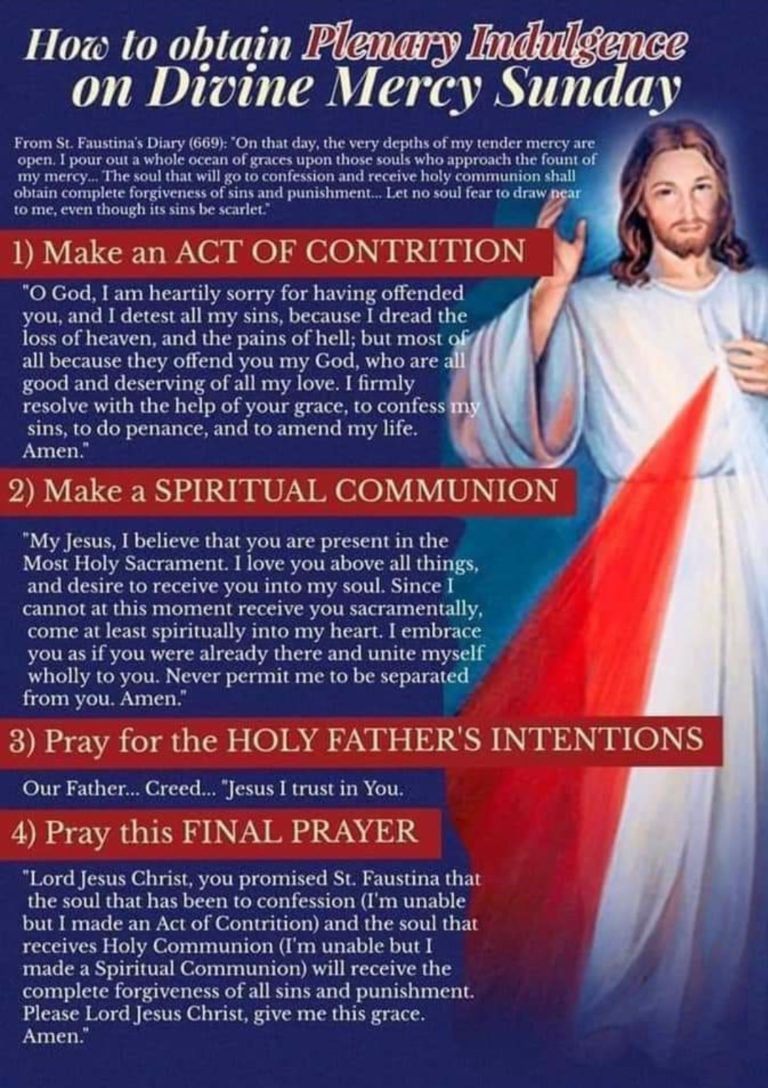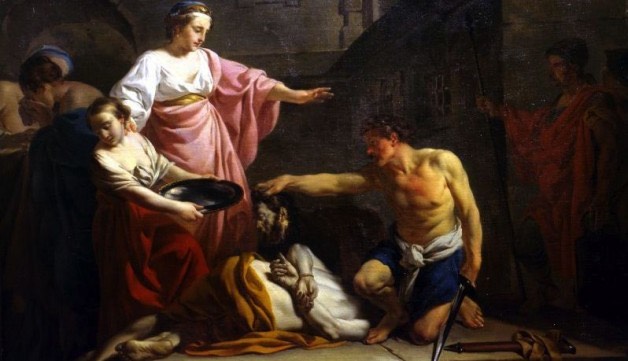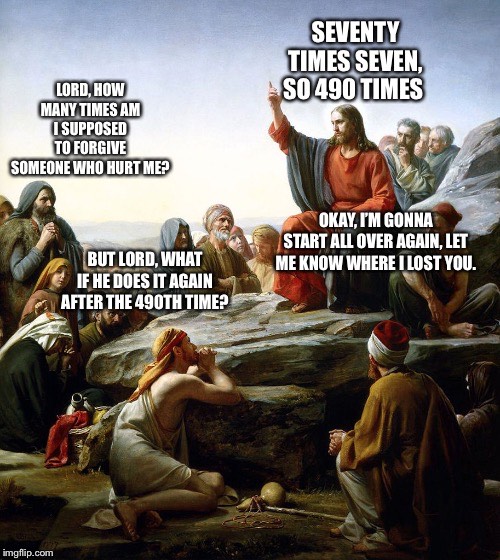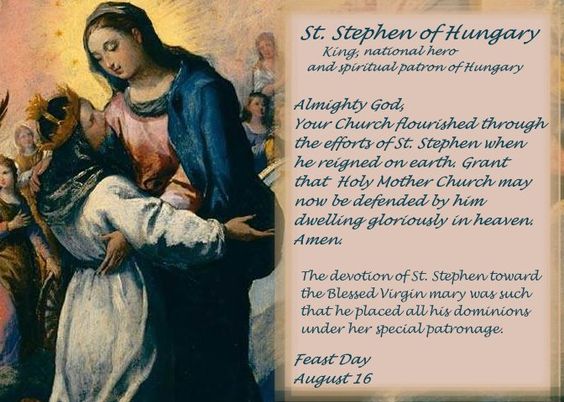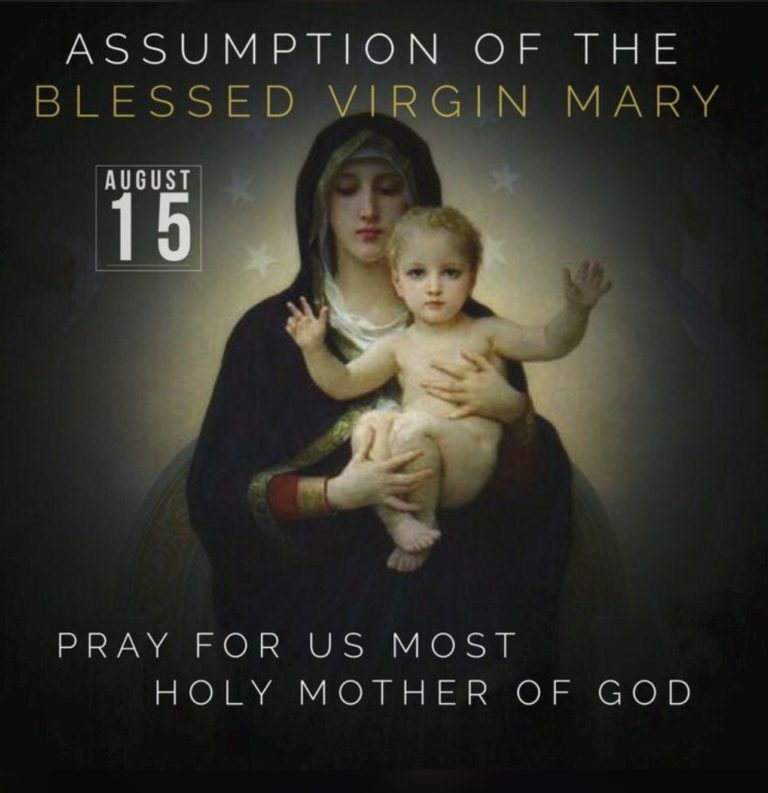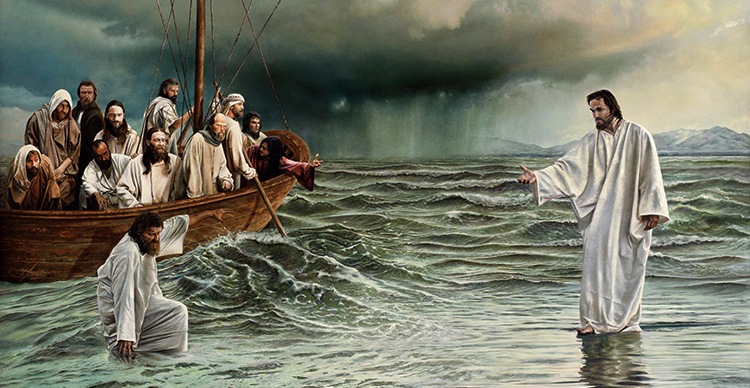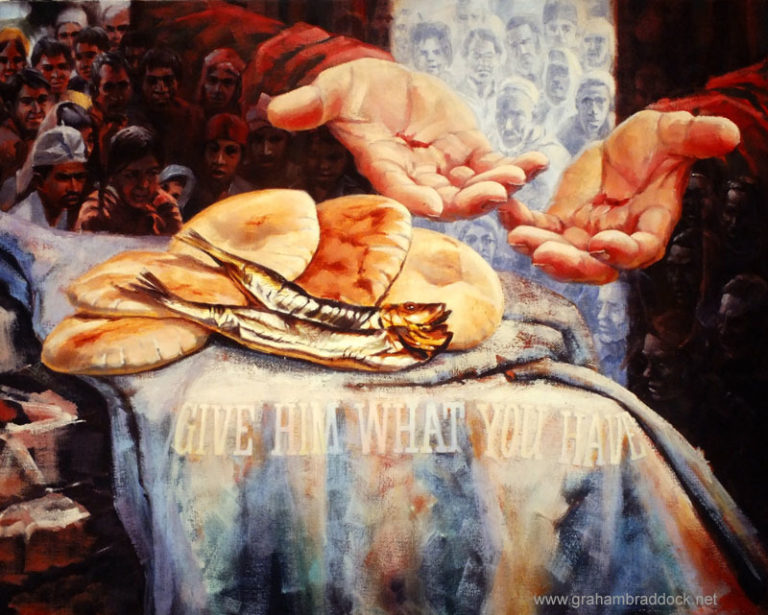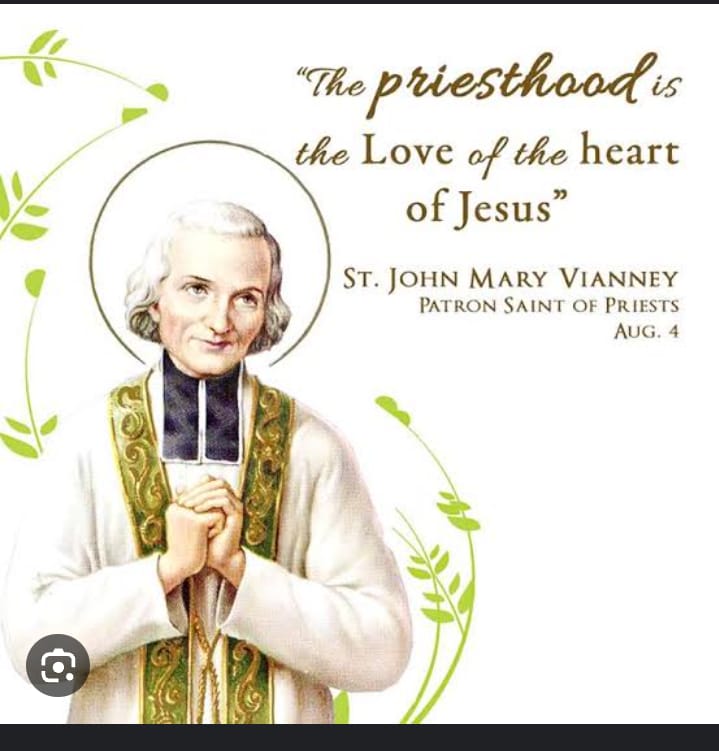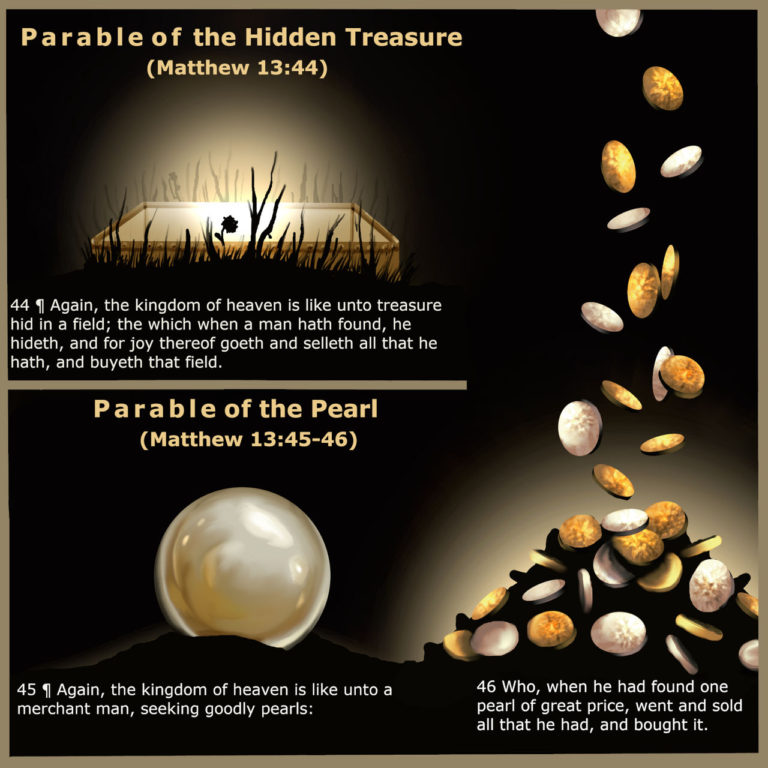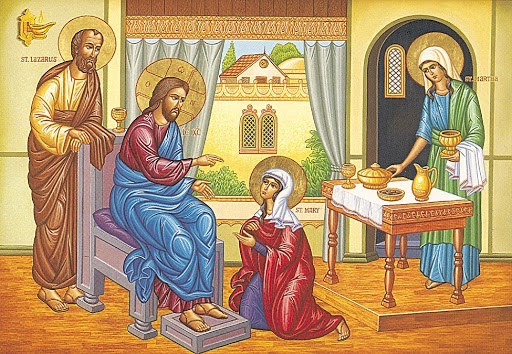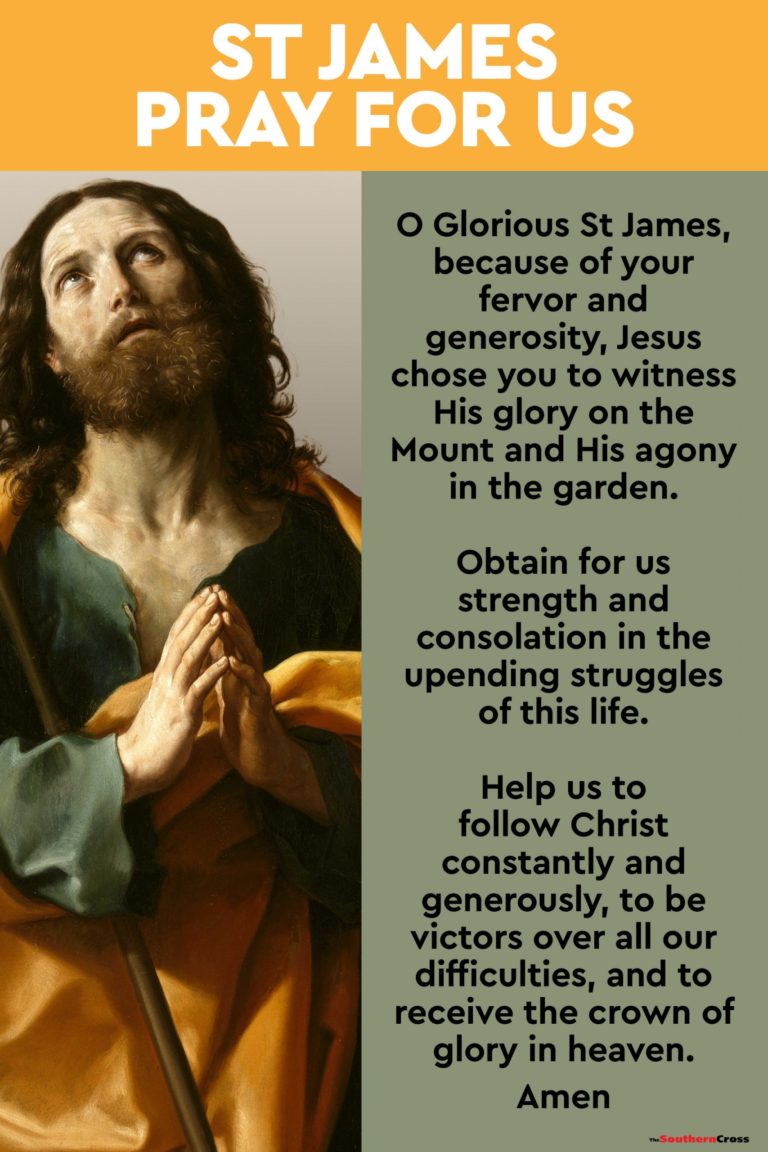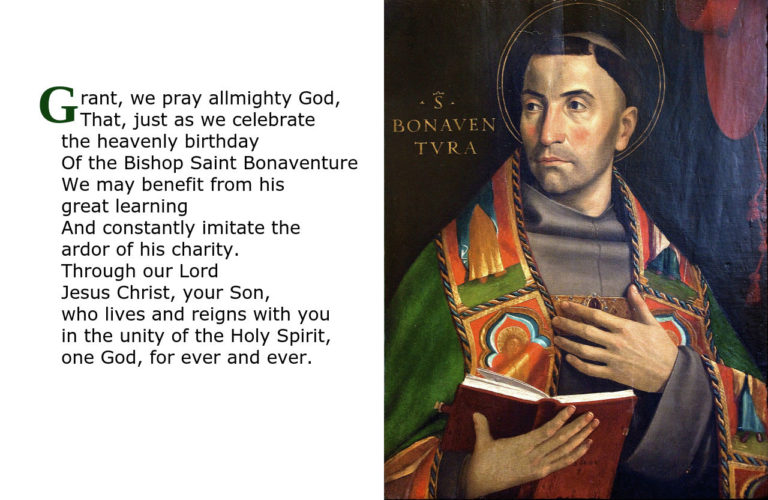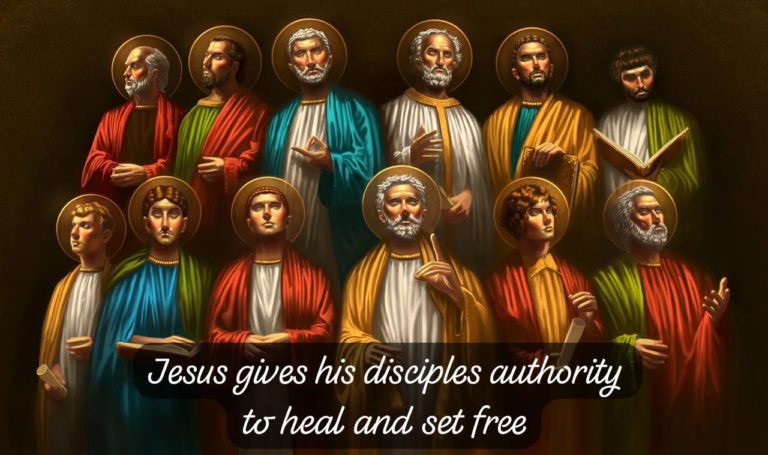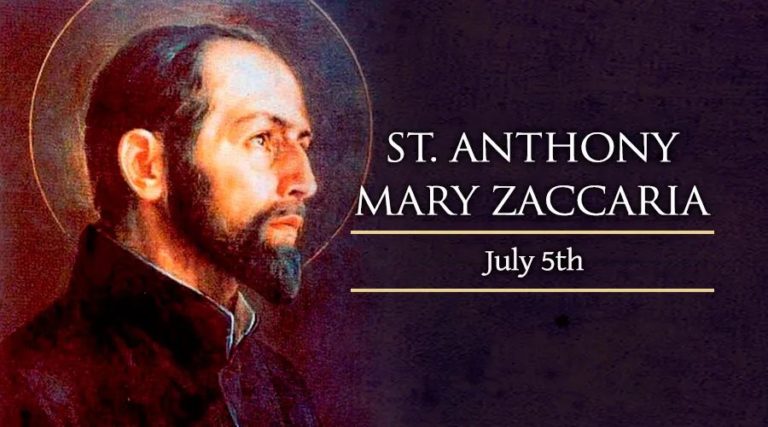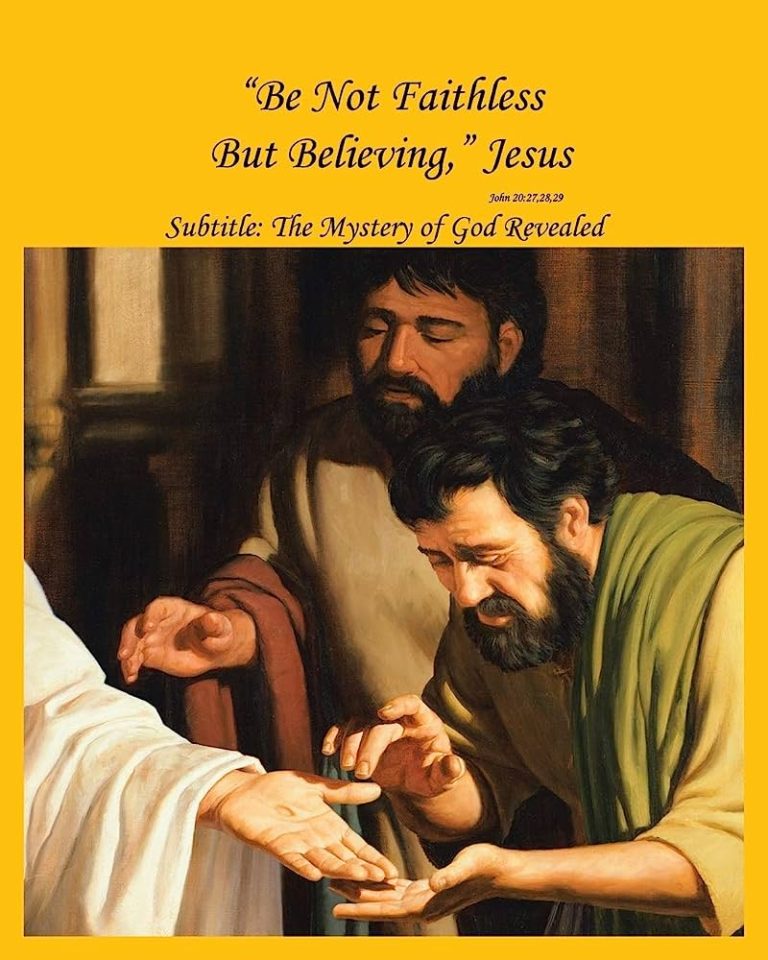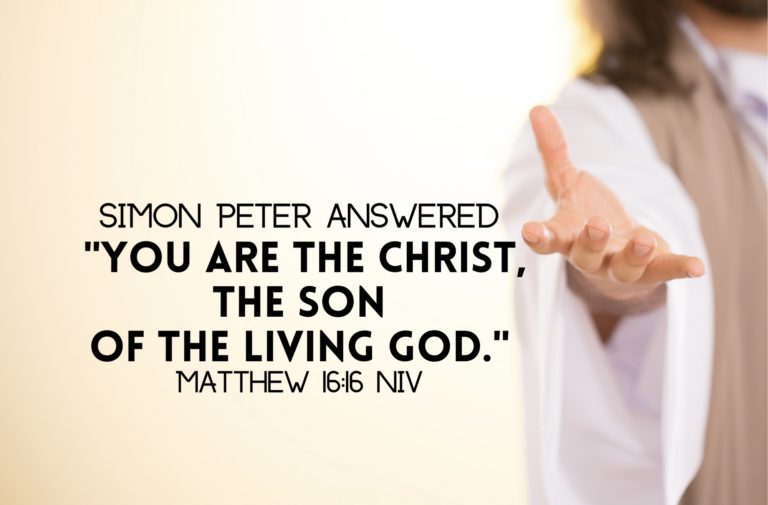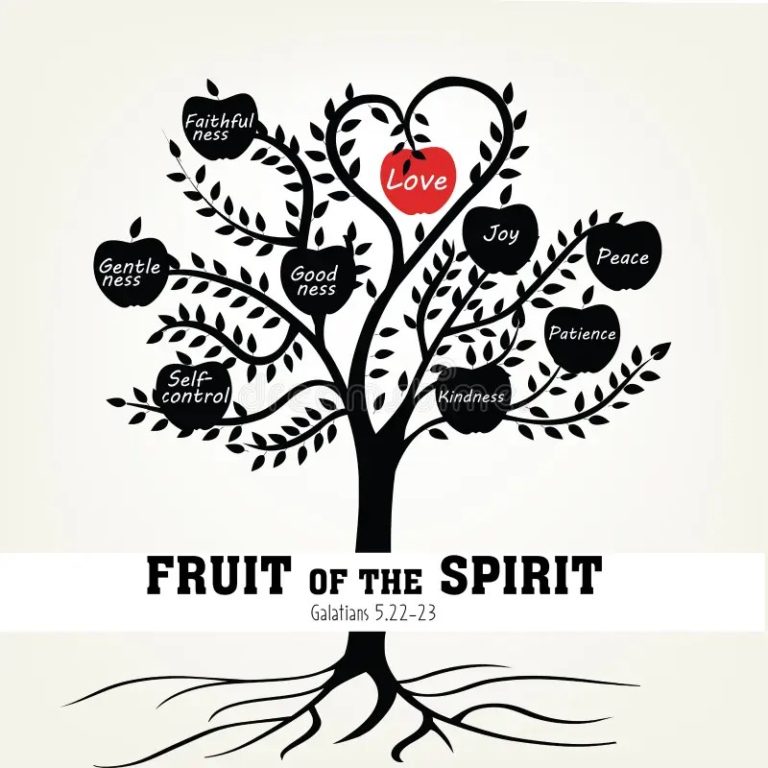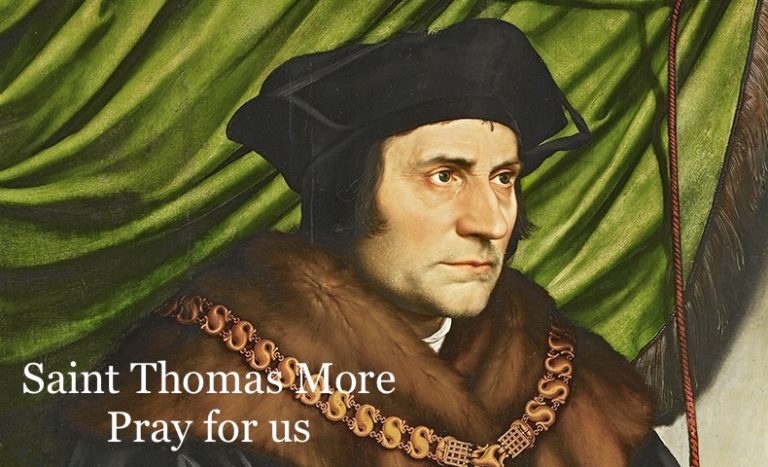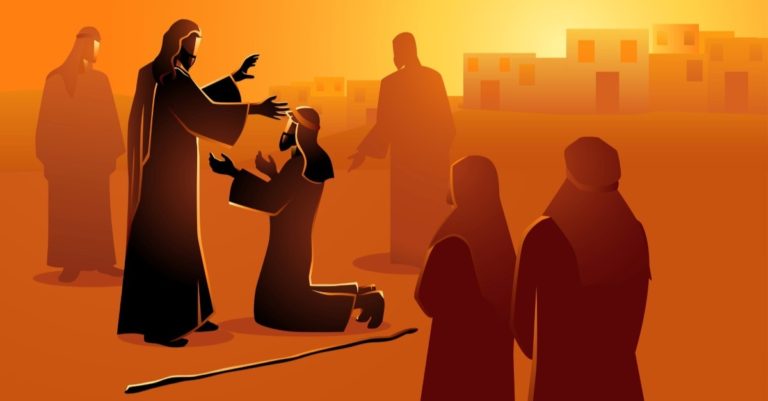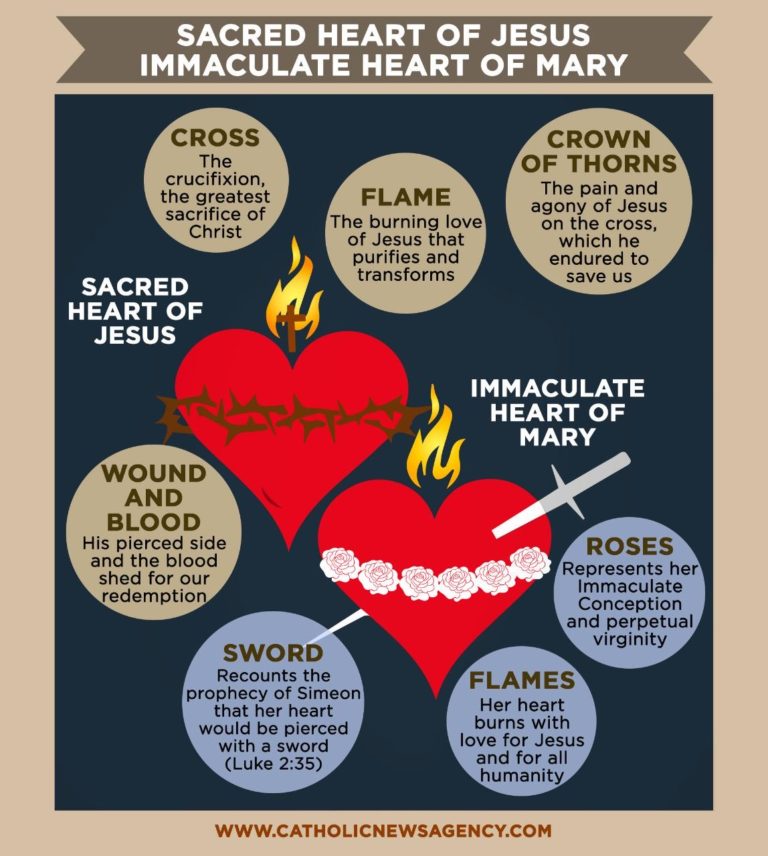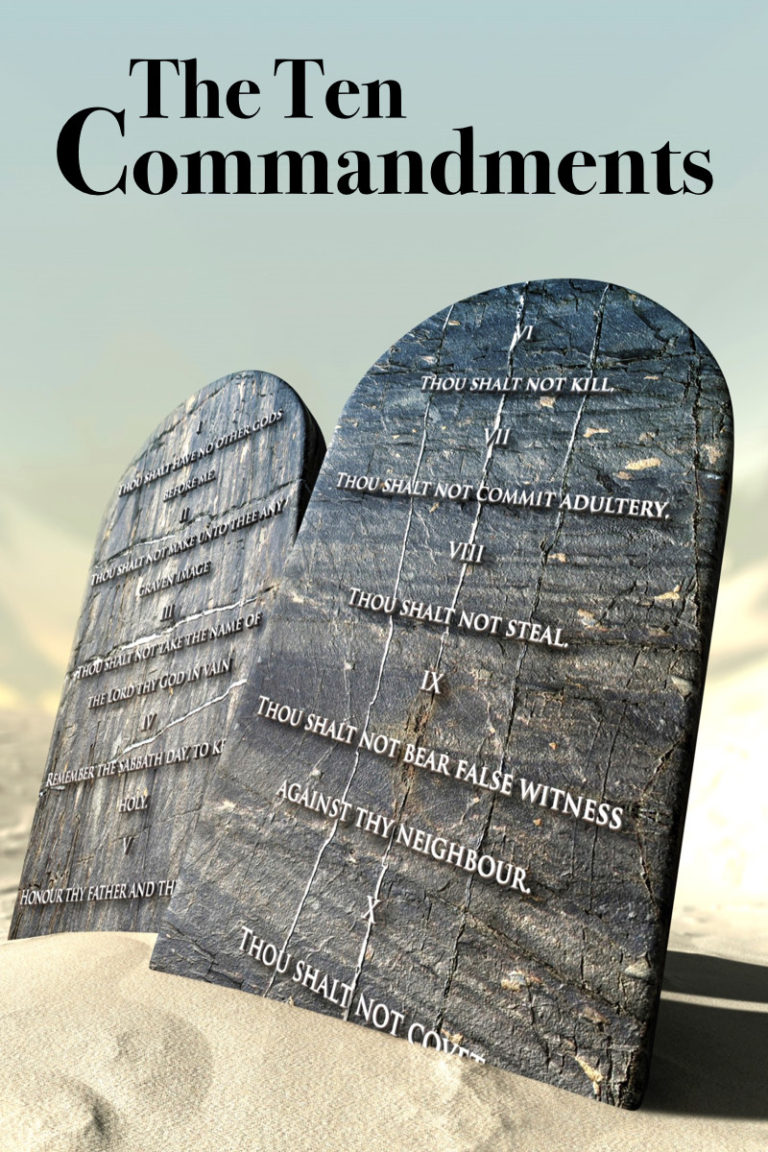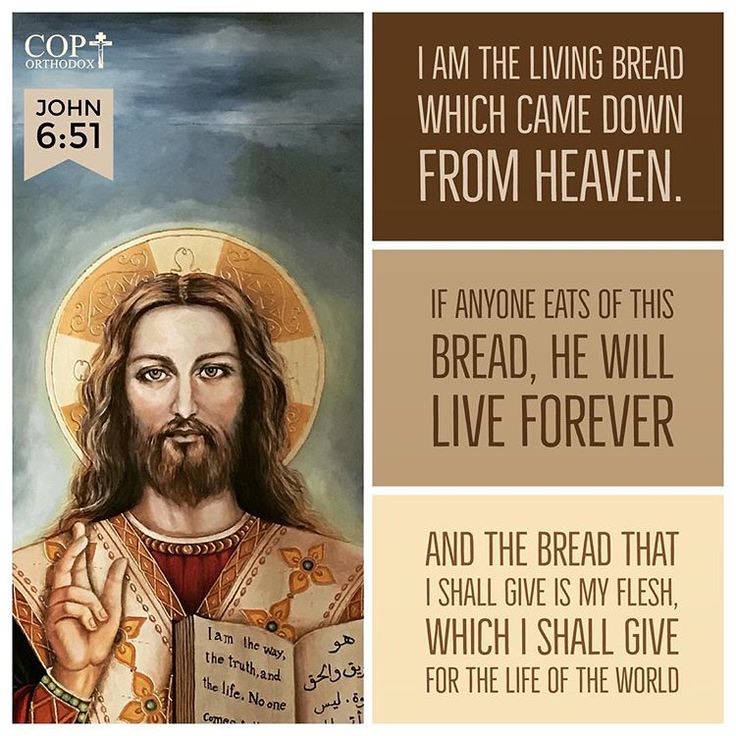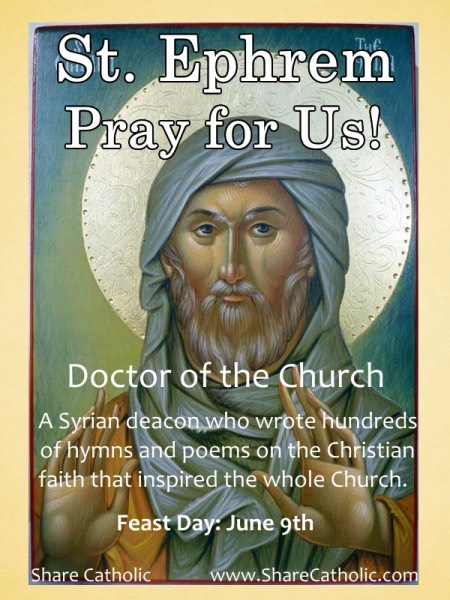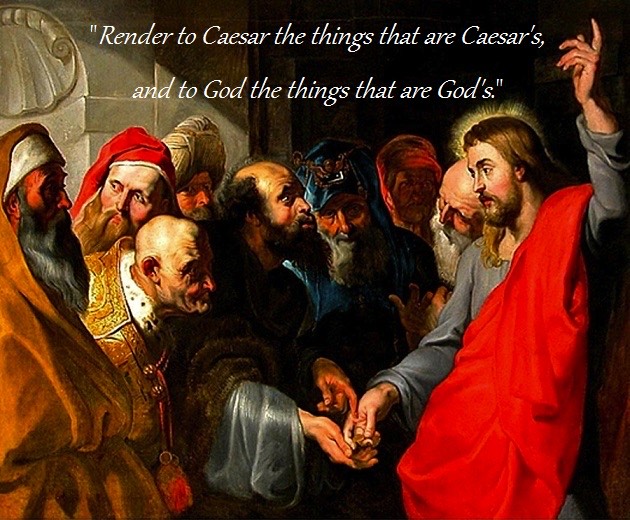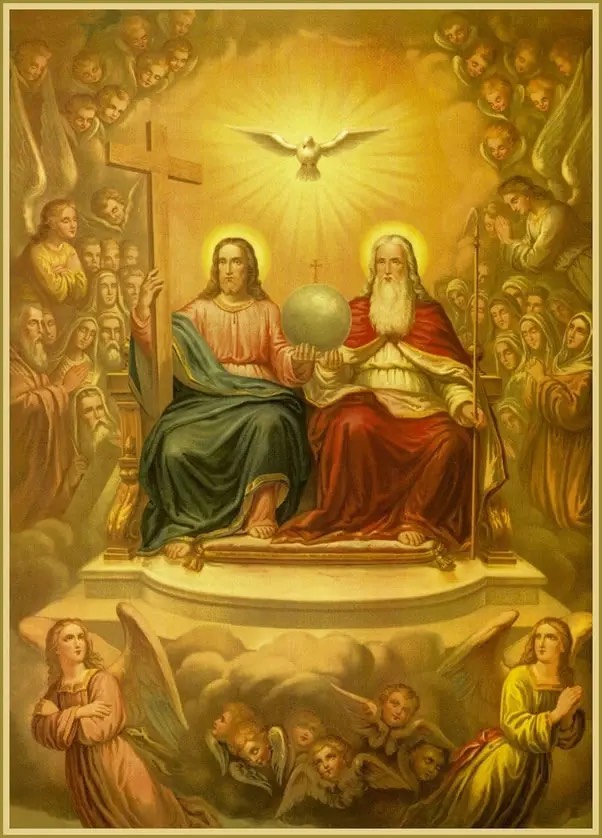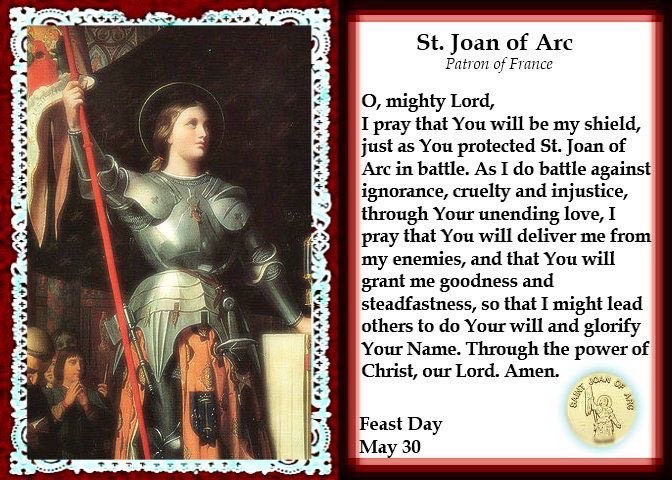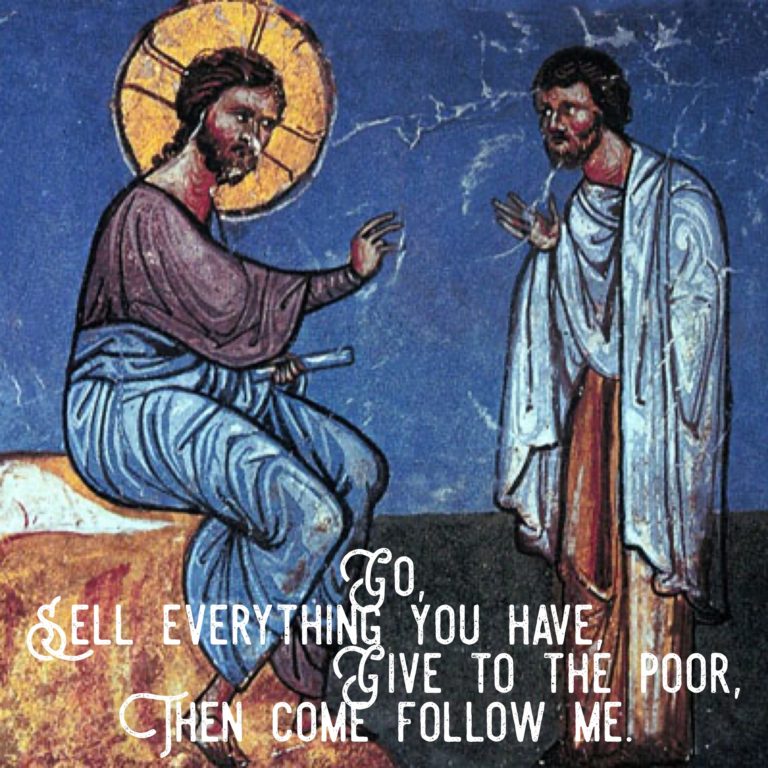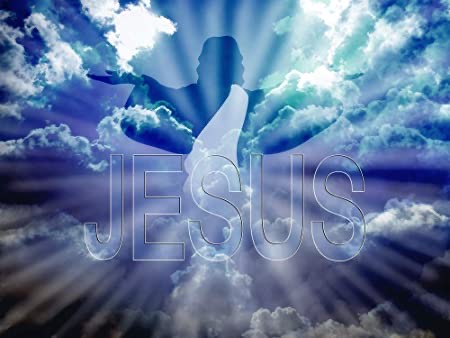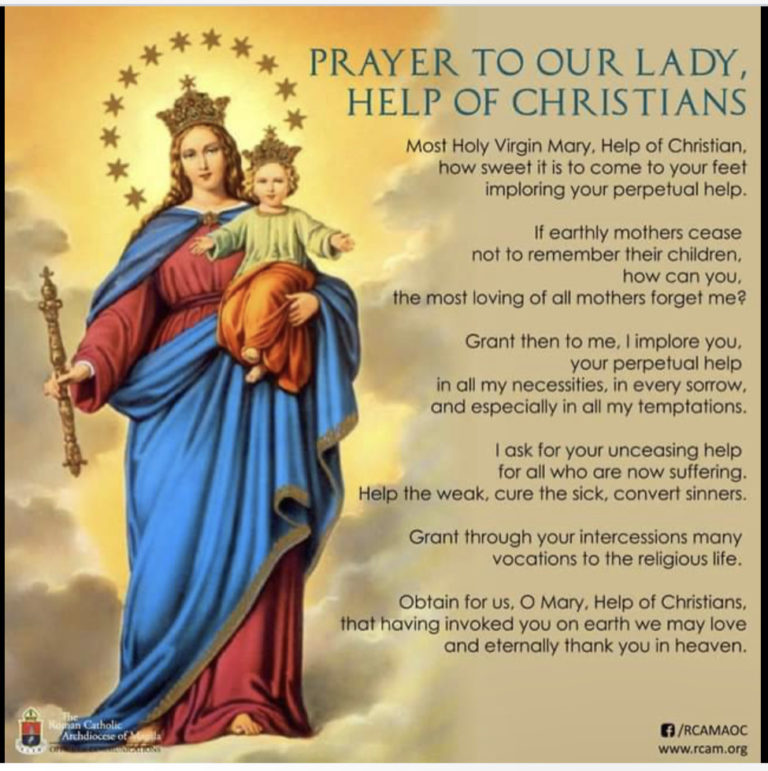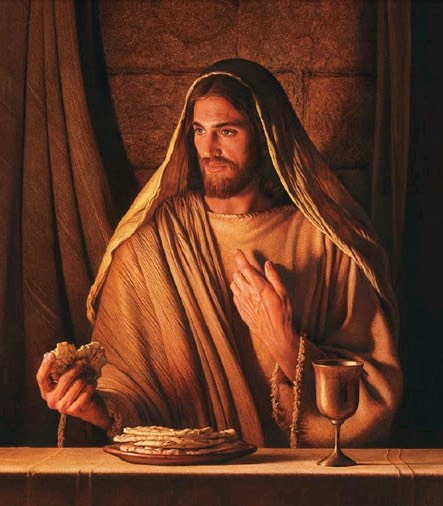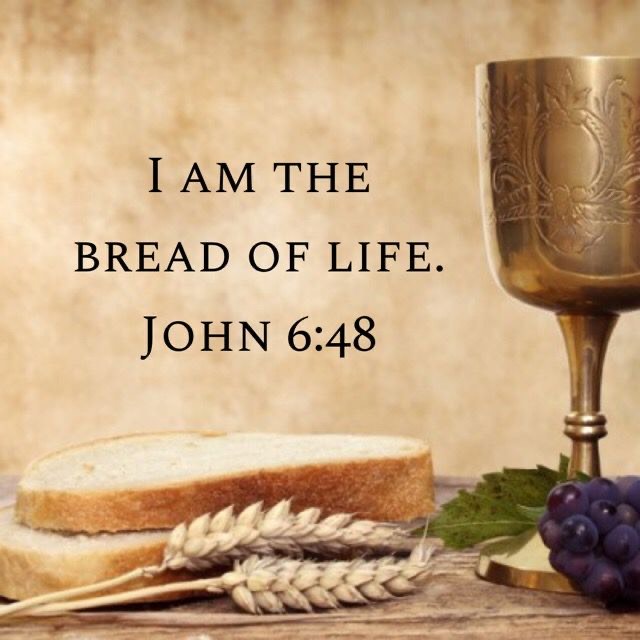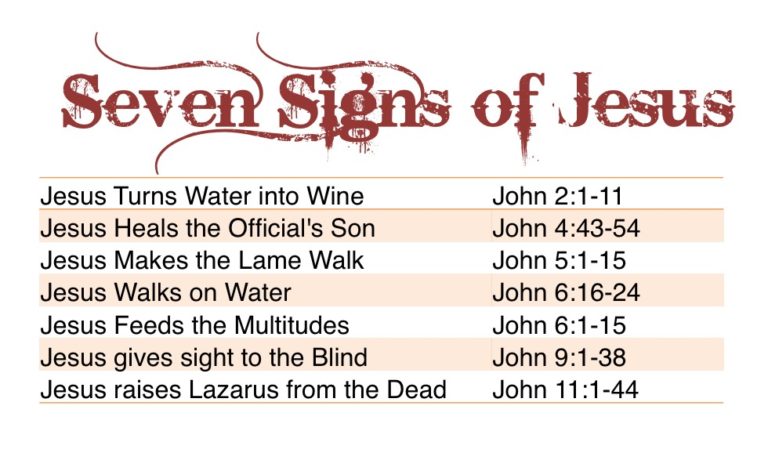MORE OF FR SHOWRI DAILY REFLECTIONS
Scripture for today...
Mark 6:17-29
Herod Feared John – a Righteous and Holy Man
The Passion of Saint John the Baptist, Martyr—Memorial
c. 1 B.C.–c. 30Patron Saint of baptism, bird dealers, converts, monastic life, motorways, printers, tailors, lambs, and prisonersInvoked against epilepsy, convulsions, hailstorms, and spasms
John, the son of Zechariah and Elizabeth, was born approximately six months before the Savior of the World. He was likely born in the small, rural Jewish town of Ein Karem, located in the hill country about five miles west of Jerusalem. The surrounding land would have been utilized for agriculture and herding, centered around a town hub and water well.
Uniquely, John was blessed with the presence of both the Son of God and the Mother of God at his birth. Many Catholic theologians, including the Angelic Doctor of the Church, Saint Thomas Aquinas, believe that while John was conceived in Original Sin, he was sanctified in the womb immediately after the Blessed Virgin Mary greeted his mother Elizabeth, several months prior to John’s birth. “When Elizabeth heard Mary’s greeting, the infant leaped in her womb…” (Luke 1:41).
This leap in the womb has been interpreted as John’s sanctification by grace before he was born. Jesus would later say of John, “Amen, I say to you, among those born of women there has been none greater than John the Baptist” (Matthew 11:11).
Not much is known about John’s childhood other than what is stated in the Bible, “The child grew and became strong in spirit, and he was in the desert until the day of his manifestation to Israel”
Though he would have been raised devoutly in the Jewish faith by his parents in their hometown, John eventually entered the desert, about twenty miles east of his hometown, to live as a hermit, praying, practicing penance, and preparing for his mission. John’s first mission was to serve as the precursor of the Lord.
As the last of the Old Testament prophets and the first of the New Testament prophets, he bridges the gap to Christ. John’s mission was to precede Jesus “in the spirit and power of Elijah to turn the hearts of fathers toward children and the disobedient to the understanding of the righteous, to prepare a people fit for the Lord” (Luke 1:17)
Sometime between the years 27–29, John received inspiration from God in the Judean desert and started to gather disciples whom he taught, called to repentance, and baptized with water. John’s preaching was fierce, branding some a “brood of vipers” and demanding evidence of their conversion.
He called tax collectors, soldiers, religious leaders, the average townspeople, and even Herod to repent. Many responded.
John’s life reached its earthly climax when he saw Jesus, the Son of God, approaching him in the desert while he was baptizing. John immediately exclaimed, “Behold, the Lamb of God, who takes away the sin of the world.
He is the one of whom I said, ‘A man is coming after me who ranks ahead of me because he existed before me.’ I did not know him, but the reason why I came baptizing with water was that he might be made known to Israel…Now I have seen and testified that he is the Son of God” (John 1:29–31)
John reluctantly baptized Jesus, after which the Holy Spirit descended upon Jesus in a visible form and the Voice of the Father thundered, “This is my beloved Son, with whom I am well pleased” (Matthew 3:17). With that, John’s life began to recede into the background, “He must increase; I must decrease” (John 3:30)
Today, the Church commemorates one of the oldest feasts within the Church, the Memorial of the Beheading of Saint John the Baptist. Just as John preceded Jesus in birth, preaching, and baptizing, so too did he precede Jesus in death, dying as a prefiguration of the one who would give His life sacrificially on the Cross.
John’s death resulted from his bold proclamation of the truth.
His call to repentance extended to everyone, including Herod Antipas, the tetrarch, ruler of Galilee and Perea. Although it appears that the area where John was preaching (the Jordan Valley) was not directly governed by Herod, Herod nonetheless was well aware of John’s preaching and his condemnation of him.
As a result, Herod was able to have John arrested and imprisoned.
John was most likely imprisoned in a fortress constructed by Herod Antipas’ father, Herod the Great, named Machaerus, northwest of the Dead Sea, in modern-day Jordan. Alternatively, he might have been imprisoned in the Herodium, another palace under Herod’s control just south of Jerusalem.
Two of the Gospels narrate the story of John’s death: Matthew 14:1-12
John’s criticism of Herod was specific. He condemned Herod’s unlawful marriage to his brother’s wife, Herodias. Though Herod seemed to fear John and his disciples because of John’s popularity and the power of his words, he decided to appease Herodias’ hatred of John for condemning her and Herod.
On Herod’s birthday, Herodias’ daughter, traditionally named Salome, performed a dance for Herod and his guests that so pleased him that he promised her anything she asked of him, up to half of his kingdom.
Her mother saw her opportunity for revenge and convinced her daughter to ask for the head of John the Baptist on a platter. In his weakness, Herod complied. After John’s death, the Bible tells us that “His disciples came and took away the corpse and buried him; and they went and told Jesus” (Matthew 14:12)
The news caused Jesus to withdraw alone in a boat to a deserted place to pray. Jesus not only grieved with human sorrow over the death of his cousin, but he also came face-to-face with the reality of His own fate.
Thus, His time of prayer was a period in which He perfectly renewed His fidelity to the Mission on which He was sent, to give His life for the salvation of souls. Traditionally, it is believed that John’s body was buried in the town of Sebaste, about fifty miles north of Jerusalem. Various traditions have evolved over the centuries about what happened to his head.
Some say Herodias buried it in a dung heap to hide it from his followers and it was later discovered, buried in the Mount of Olives, and today is preserved in the Church of San Silvestro in Capite, Rome, Italy. This tradition, among many others, is impossible to confirm.
As we honor this man so highly honored by our Lord, we also honor our Lord Himself. John’s life was given to the mission to which he was called. He never wavered and willingly accepted even death, rather than shy away from God’s will. He introduced the Lamb of God to the world and led the way for Jesus by his preaching, baptism of repentance, and death, which prefigured Jesus’ own death.
As you ponder Saint John’s life, reflect especially upon the wholehearted commitment he made to selflessly give himself to the mission he received. Where you see hesitancy in your own life, take inspiration from Saint John the Baptist, praying that you will exemplify his courage and resolve to fulfill the will of God.
Saint John the Baptist, you were given a holy mission and sanctified in the womb of your mother in preparation for that mission. You never deviated from your calling and always pointed the way to Christ, the Savior of all. Please pray for me, that I will have the same courage you had and the resolve to fulfill my duties, no matter the cost. Saint John the Baptist, pray for me. Jesus, I trust in You.
JESUS I TRUST IN YOU!
Scripture for today...
Matthew 19:3-12
What God has joined together
JESUS I TRUST IN YOU!
Scripture for today...
Matthew 19:3-12
What God has joined together
Saint Louis of Toulouse
Feb 9, 1274 – Aug 19, 1297
When he died at the age of 23, Louis was already a Franciscan, a bishop, and a saint!
Louis’s parents were Charles II of Naples and Sicily, and Mary, daughter of the King of Hungary. Louis was related to Saint Louis IX on his father’s side and to Elizabeth of Hungary on his mother’s side.
Louis showed early signs of attachment to prayer and to the corporal works of mercy. As a child he used to take food from the castle to feed the poor. When he was 14, Louis and two of his brothers were taken as hostages to the king of Aragon’s court as part of a political deal involving Louis’s father.
At the court, Louis was tutored by Franciscan friars under whom he made great progress both in his studies and in the spiritual life. Like Saint Francis he developed a special love for those afflicted with leprosy.
While he was still a hostage, Louis decided to renounce his royal title and become a priest.
When he was 20, he was allowed to leave the king of Aragon’s court. He renounced his title in favor of his brother Robert and was ordained the next year. Very shortly after, he was appointed bishop of Toulouse, but the pope agreed to Louis’s request to become a Franciscan first.
The Franciscan spirit pervaded Louis. “Jesus Christ is all my riches; he alone is sufficient for me,” Louis kept repeating. Even as a bishop he wore the Franciscan habit and sometimes begged. He assigned a friar to offer him correction—in public if necessary—and the friar did his job.
Louis’s service to the Diocese of Toulouse was richly blessed. In no time he was considered a saint. Louis set aside 75 percent of his income as bishop to feed the poor and maintain churches. Each day he fed 25 poor people at his table.
Louis was canonized in 1317 by Pope John XXII, one of his former teachers. His liturgical feast is celebrated on August 19.
Reflection
When Cardinal Hugolino, the future Pope Gregory IX, suggested to Francis that some of the friars would make fine bishops, Francis protested that they might lose some of their humility and simplicity if appointed to those positions. Those two virtues are needed everywhere in the Church, and Louis shows us how they can be lived out by bishops.
JESUS I TRUST IN YOU!
Scripture for today...
Matthew 18:21-19:1
Lord, how often shall I forgive my brother?
Does mercy overlook justice? Justice demands that everyone be given their due. So when is it right to show mercy and pardon to those who have acted unjustly or wrongly? The prophet Amos speaks of God forgiving transgression three times, but warns that God may not revoke punishment for the fourth (see Amos 1:3-13; 2:1-6). When Peter posed the question of forgiveness, he characteristically offered an answer he thought Jesus would be pleased with. Why not forgive seven times! How unthinkable for Jesus to counter with the proposition that one must forgive seventy times that.
No limit to granting forgiveness and pardon
Jesus makes it clear that there is no limit to giving and receiving forgiveness. He drove the lesson home with a parable about two very different kinds of debts. The first man owed an enormous sum of money – millions in our currency. In Jesus’ time this amount was greater than the total revenue of a province – more than it would cost to ransom a king! The man who was forgiven such an incredible debt could not, however, bring himself to forgive his neighbor a very small debt which was about one-hundred-thousandth of his own debt.The contrast could not have been greater!
Jesus paid our ransom to set us free from the debt of sin
No offense our neighbor can do to us can compare with our own personal debt to God for offending him! We have been forgiven an enormous debt we could not repay on our own. That is why the Father in heaven sent his only begotten Son, the Lord Jesus Christ, who freely and willing gave up his life for our sake to ransom us from slavery to sin, Satan, and death. Paul the Apostle states, “you were bought with a price” (1 Corinthians 7:23 ) and that price was Jesus’ death on the cross. Through the shedding of his blood on the cross, Jesus not only brought forgiveness and pardon for our offenses, but release from our captivity to Satan and bondage to sin.
Set free from futile thinking and sinful living
The Lord Jesus sets us free from a futile mind and way of living in sin and spiritual darkness. “You were ransomed from the futile ways inherited from your fathers …with the precious blood of Christ” (1 Peter 1:18). Christ “gave himself to redeem us from all iniquity” (Titus 2:14). Iniquity describes the futile ways of wrong thinking, sinful attitudes and wrong behavior, and disregarding or treating God’s commandments lightly. We have been forgiven an enormous debt which we could never possibly repay. We owe God a debt of gratitude for the mercy and grace he has given us in his Son, Jesus Christ.
Forgiving others is a sacred duty
If God has shown mercy to us in granting us pardon for our sins, then we, in turn, must show mercy and forgiveness towards every person who has offended us. The willingness to forgive those who offend us is a sacred duty. If we expect God to pardon us and show us his mercy when we sin and disobey his commandments, then we must be willing to let go of any resentment, grievance, or ill-will we feel towards our neighbor. Jesus teaches us to pray daily for the grace and strength to forgive others in the same measure in which God has forgiven us (Matthew 6:12,14-15). If we do not show mercy and forgiveness to our fellow human beings, how can we expect God to forgive us in turn? The Apostle James says that “judgment is without mercy to one who has shown no mercy” (James 2:13).
Mercy seasons justice and perfects it
Mercy is the flip-side of God’s justice. Without mercy justice is cold, calculating, and even cruel. Mercyseasons justice assalt seasons meat and gives it flavor. Mercy follows justice and perfects it. Justice demands that the wrong be addressed. To show mercy without addressing the wrong and to pardon the unrepentant is not true mercy but license. C.S. Lewis, a 20th century Christian author wrote: “Mercy will flower only when it grows in the crannies of the rock of Justice: transplanted to the marshlands of mere Humanitarianism, it becomes a man-eating weed, all the more dangerous because it is still called by the same name as the mountain variety.”
If we want mercy shown to us we must be ready to forgive others from the heart as God has forgiven us. Do you hold any grudge or resentment towards anyone? Ask the Lord to purify your heart that you may show mercy and loving-kindness to all – and especially to those who cause you grief and ill-will.
“Lord Jesus, you have been kind and forgiving towards me. May I be merciful as you are merciful. Free me from all bitterness and resentment that I may truly forgive from the heart those who have caused me injury or grief.”
Saint Joan of the Cross
June 18, 1666 – Aug 17, 1736
An encounter with a shabby old woman many dismissed as insane prompted Saint Joan to dedicate her life to the poor. For Joan, who had a reputation as a businesswoman intent on monetary success, this was a significant conversion.
Born in 1666, in Anjou, France, Joan worked in the family business—a small shop near a religious shrine—from an early age. After her parents’ death she took over the shop. She quickly became known for her greediness and insensitivity to the beggars who often came seeking help.
That was until she was touched by the strange woman who claimed she was on intimate terms with the deity. Joan, who had always been devout, even scrupulous, became a new person. She began caring for needy children. Then the poor, elderly, and sick came to her. Over time, she closed the family business so she could devote herself fully to good works and penance.
She went on to found what came to be known as the Congregation of Saint Anne of Providence. It was then she took the religious name of Joan of the Cross. By the time of her death in 1736 she had founded 12 religious houses, hospices, and schools. Pope John Paul II canonized her in 1982.
The downtown areas of most major cities hold a population of “street people.” Well-dressed folks usually avoid making eye contact, probably for fear of being asked for a handout. That was Joan’s attitude until the day one of them touched her heart. Most people thought the old woman was crazy, but she put Joan on the road to sainthood. Who knows what the next beggar we meet might do for us?
JESUS I TRUST IN YOU!
Scripture for today...
Matthew 18:15-20
If your brother sins against you
The Life Story of the Saint
Saint Stephen of Hungary
975 – Aug 15, 1038
The Church is universal, but its expression is always affected—for good or ill—by local culture. There are no “generic” Christians; there are Mexican Christians, Polish Christians, Filipino Christians. This fact is evident in the life of Stephen, national hero and spiritual patron of Hungary.
Born a pagan, he was baptized around the age of 10, together with his father, chief of the Magyars, a group who migrated to the Danube area in the ninth century. At 20, he married Gisela, sister to the future emperor, Saint Henry. When he succeeded his father, Stephen adopted a policy of Christianization of the country for both political and religious reasons.
He suppressed a series of revolts by pagan nobles and welded the Magyars into a strong national group. He asked the pope to provide for the Church’s organization in Hungary—and also requested that the pope confer the title of king upon him. He was crowned on Christmas day in 1001.
Stephen established a system of tithes to support churches and pastors and to relieve the poor. Out of every 10 towns one had to build a church and support a priest. He abolished pagan customs with a certain amount of violence, and commanded all to marry, except clergy and religious. He was easily accessible to all, especially the poor.
In 1031, his son Emeric died, and the rest of Stephen’s days were embittered by controversy over his successor. His nephews attempted to kill him. He died in 1038 and was canonized, along with his son, in 1083.
Reflection
God’s gift of holiness is a Christlike love of God and humanity. Love must sometimes bear a stern countenance for the sake of ultimate good. Christ attacked hypocrites among the Pharisees, but died forgiving them. Paul excommunicated the incestuous man at Corinth “that his spirit may be saved.” Some Christians fought the Crusades with noble zeal, in spite of the unworthy motives of others.
Today, after senseless wars, and with a deeper understanding of the complex nature of human motives, we shrink from any use of violence—physical or “silent.” This wholesome development continues as people debate whether it is possible for a Christian to be an absolute pacifist or whether evil must sometimes be repelled by force.
Saint Stephen of Hungary is the Patron Saint of:
Bricklayers
Hungary
JESUS I TRUST IN YOU!
Scripture for today...
Luke 1:39-56
My Spirit Rejoices in God My Savior
Assumption of the BV Mary
Assumption of the Blessed Virgin Mary—Solemnity
Patron Saint of fishmongers, French air crews, harnessmakers, and numerous countries, cities, and dioceses.
…by the authority of our Lord Jesus Christ, of the Blessed Apostles Peter and Paul, and by our own authority, we pronounce, declare, and define it to be a divinely revealed dogma: that the Immaculate Mother of God, the ever Virgin Mary, having completed the course of her earthly life, was assumed body and soul into heavenly glory.
Hence if anyone, which God forbid, should dare willfully to deny or to call into doubt that which we have defined, let him know that he has fallen away completely from the divine and Catholic Faith.
~Munificentissimus Deus, Pope Pius XII, 1950
Within the history of the Church, one fascinating and inspiring phenomenon is the incorruptibility of some saints’ bodies. Over the course of history, the bodies of certain holy men and women have been exhumed from their tombs.
On occasion, these bodies have been found to be incorrupt, meaning they have not decayed. Among the most notable saints are Bernadette Soubirous, Catherine Labouré, John Vianney, Padre Pio, Vincent de Paul, Clare of Assisi, and Teresa of Avila.
However, the body of today’s saint, the Blessed Virgin Mary, the Mother of God, is unique. It is not just incorrupt but is also alive, resurrected, transformed, and sharing in eternal glory. Other than her Divine Son, the Mother of God is the only one to have been granted this privilege.
Traditionally, today’s Solemnity has been referred to variably as the Blessed Virgin Mary’s rest, birth into Heaven, entombment, and falling asleep. The earliest written references to the Assumption of the Blessed Virgin Mary date back to the third and fourth centuries.
In the seventh century, Saint John Damascene wrote beautifully about the Assumption of the Blessed Virgin Mary in three sermons. He also narrates a story about the Roman Emperor Marcian (c. 392–457) who approached the bishops at the Council of Chalcedon in 451, requesting information about the location of the body of the Blessed Virgin Mary. The emperor wished to build a magnificent church in her honor.
Saint John Damascene describes it this way:
Saint Juvenal, Bishop of Jerusalem, at the Council of Chalcedon (451), informed Emperor Marcian and Pulcheria, who wished to possess the body of the Mother of God, that Mary died in the presence of all the Apostles. However, when her tomb was opened upon the request of St. Thomas, it was found empty, leading the Apostles to conclude that her body was taken up to Heaven.
Today, just outside of the ancient city of Jerusalem, next to the Garden of Gethsemane, pilgrims can find an ancient church, believed to have been the original burial site of the Blessed Virgin Mary, from which she rose and was assumed into Heaven. Like Christ her Son, her tomb is empty.
It wasn’t until 1950 that the ancient belief in the Assumption of the Blessed Virgin Mary was elevated to the level of a dogma. As a dogma, the Church proclaimed that this belief must be held by all the Catholic faithful as true and divinely revealed. It did not begin to be true in 1950; rather, that which had always been true was given great solemnity and clarity within the teachings of the Church.
It’s important to understand that the one deposit of faith—the truths in the mind of God revealed to us in Christ Jesus—does not change. Truth doesn’t change; our comprehension of the Truth deepens over time.
In regard to our Blessed Mother, the Church teaches four dogmas.
First, the Council of Ephesus, in 431, definitively taught that the Blessed Virgin Mary was properly called the “Mother of God.” She was not just the mother of Christ, or the mother of Jesus, or mother only of His flesh. She was the mother of a Person, and that Person was God; hence, she is to be called the Mother of God.
A second dogma of the Blessed Virgin Mary is that of her perpetual virginity. This belief, held and taught by the earliest Church Fathers, was definitively taught at the Council in Constantinople in 553 when Mary was referred to as “ever-virgin.”
To add even more clarity, during the Lateran Council of 649, Pope Saint Martin I clarified that “ever-virgin” meant three things: Mary was a virgin before, during, and after Christ’s birth. First, this means she conceived her Son while being a virgin.
Second, when she gave birth to her Son, she did not suffer from the effects of original sin as outlined in Genesis 3:16 “I will intensify your toil in childbearing; in pain, you shall bring forth children.” Third, after the birth of Jesus, she never had relations with a man and bore no other children.
A third dogma of the Blessed Virgin Mary was solemnly defined in 1854 when Pope Pius IX declared her to be the Immaculate Conception. He stated that “…the most Blessed Virgin Mary, from the first moment of her conception, by a singular grace and privilege from Almighty God and in view of the merits of Jesus Christ, was kept free of every stain of original sin.”
She then remained free from sin throughout her life.
Finally, the fourth dogma of the Blessed Virgin Mary, which we celebrate today, is the logical consequence of the previous dogmas, especially the Dogma of the Immaculate Conception.
If the Mother of God was free from sin, did not suffer the consequences of original sin—such as the pains of childbirth—then she would also, necessarily, not suffer the effects of sin, which are death and bodily decay. However, a few things need to be clarified in this regard.
First, the dogmatic teaching states that the Blessed Virgin Mary “…
having completed the course of her earthly life, was assumed body and soul into heavenly glory.” Does that mean she died and was placed in a tomb? Or does that mean that she did not die and was taken body and soul while she was alive?
The Church has not definitively answered this question. The rationale is that, since Jesus died and then rose, wouldn’t this be the sequence for our Blessed Mother followed? Regardless of the answer, what is proclaimed is that her body never experienced decay.
If she died, then, just like her Son, her body slept as it anticipated sharing in the Resurrection, perhaps a few days later, or perhaps immediately. If the early account from Bishop Juvenal mentioned above is accurate, then her body rested in the tomb for a short period of time.
As we honor the Mother of God, the Ever-Virgin Mary, the Immaculate Conception, we celebrate her life, the completion of her time on earth, and her glorious entrance into Heaven, body and soul. We hope to follow where she has gone. From Heaven, she loves each one of us with her perfect maternal love. Her prayers and mediation of grace are certain. We should seek her intercession today.
Doing so with great confidence, we should know that a mother so loving would never deny her children all good things granted in accord with God’s will.
Dearest Mother, assumed into Heaven, you are the Immaculate Conception, the Ever-Virgin Mary, the Mother of God.
As we honor your glorious Assumption into Heaven, please pray for me and for all your children. In Heaven, you are honored by your Son and your prayers are most effective. I believe this with all my heart and entrust myself, my family, our Church, and the entire world to your motherly care and intercession. Mary, assumed into
Heaven, pray for me. Jesus, I trust in You.
JESUS I TRUST IN YOU!
Scripture for today...
Matthew 17:22-27
Not to give offense
The Life Story of the Saint
Jan 8, 1894 – Aug 14, 1941
Saint Maximilian Mary Kolbe’s Story
“I don’t know what’s going to become of you!” How many parents have said that? Maximilian Mary Kolbe’s reaction was, “I prayed very hard to Our Lady to tell me what would happen to me.
She appeared, holding in her hands two crowns, one white, one red. She asked if I would like to have them—one was for purity, the other for martyrdom. I said, ‘I choose both.’ She smiled and disappeared.” After that he was not the same.
He entered the minor seminary of the Conventual Franciscans in Lvív–then Poland, now Ukraine– near his birthplace, and at 16 became a novice. Though Maximilian later achieved doctorates in philosophy and theology, he was deeply interested in science, even drawing plans for rocket ships.
Ordained at 24, Maximilian saw religious indifference as the deadliest poison of the day. His mission was to combat it. He had already founded the Militia of the Immaculata, whose aim was to fight evil with the witness of the good life, prayer, work, and suffering. He dreamed of and then founded Knight of the Immaculata, a religious magazine under Mary’s protection to preach the Good News to all nations.
For the work of publication he established a “City of the Immaculata”—Niepokalanow—which housed 700 of his Franciscan brothers. He later founded another one in Nagasaki, Japan. Both the Militia and the magazine ultimately reached the one-million mark in members and subscribers. His love of God was daily filtered through devotion to Mary.
In 1939, the Nazi panzers overran Poland with deadly speed. Niepokalanow was severely bombed. Kolbe and his friars were arrested, then released in less than three months, on the feast of the Immaculate Conception.
In 1941, Fr. Kolbe was arrested again. The Nazis’ purpose was to liquidate the select ones, the leaders. The end came quickly, three months later in Auschwitz, after terrible beatings and humiliations.
A prisoner had escaped. The commandant announced that 10 men would die. He relished walking along the ranks. “This one. That one.”
As they were being marched away to the starvation bunkers, Number 16670 dared to step from the line.
“I would like to take that man’s place. He has a wife and children.”
“Who are you?”
“A priest.”
No name, no mention of fame. Silence. The commandant, dumbfounded, perhaps with a fleeting thought of history, kicked Sergeant Francis Gajowniczek out of line and ordered Fr. Kolbe to go with the nine.
In the “block of death” they were ordered to strip naked, and their slow starvation began in darkness. But there was no screaming—the prisoners sang. By the eve of the Assumption, four were left alive.
The jailer came to finish Kolbe off as he sat in a corner praying. He lifted his fleshless arm to receive the bite of the hypodermic needle. It was filled with carbolic acid. They burned his body with all the others. Fr. Kolbe was beatified in 1971 and canonized in 1982.
Reflection
Father Kolbe’s death was not a sudden, last-minute act of heroism. His whole life had been a preparation. His holiness was a limitless, passionate desire to convert the whole world to God. And his beloved Immaculata was his inspiration.
Saint Maximilian Mary Kolbe is a Patron Saint of:
Addicts
Recovery from drug addiction
JESUS I TRUST IN YOU!
Scripture for today...
Matthew 14:22-33
It is I – have no fear
An old story about trustful Faith: In the middle of a dark winter’s night in a small Midwest farming community, the two-story home of a young family caught fire.
Quickly, parents and children followed their well-practiced emergency plan and made their way through the smoke-filled home out into the front yard. There the father quickly counted heads and realized that their 5-year-old son was not among them.
Suddenly he heard a wail and looked up to see the boy at his bedroom window, crying and rubbing his eyes. Knowing the danger of reentering the house to rescue his son, the father called, “Jump, Son! I’ll catch you!” Between sobs, the boy responded to the voice he knew so well. “But I can’t see you, Daddy!” The father answered with great assurance.
“No, Son, you can’t see me, but I can see you! Jump!” At that, the boy jumped into the smoky darkness and found himself safely cradled in his father’s arms. Our Scripture readings for today are about trusting – about having Faith – about being able to discern the fact that our God is always with us, even in storms of life
JESUS I TRUST IN YOU!
Scripture for today...
Matthew 17:14-20
Nothing will be impossible to you
What kind of faith does the Lord expect of us, especially when we meet set-backs and trials? Inevitably there are times when each of us disappoint others or disappoint ourselves when we suffer some kind of set-back or failure. In this Gospel incident the disciples of Jesus fail to heal an epileptic boy.
Jesus’ response seems stern; but it is really tempered with love and compassion. We see at once Jesus’ dismay with the disciples’ lack of faith and his concern to meet the need of this troubled boy and his father. With one word of command Jesus rebukes the evil spirit that has caused this boy’s affliction and tells the spirit to “never enter him again”.
Pray with expectant faith Jesus tells his disciples that they can “remove mountains” if they have faith in God. The expression to “remove mountains” was a common Jewish phrase for removing difficulties.
A wise teacher who could solve difficulties was called a “mountain remover”. If we pray with expectant faith God will give us the means to overcome difficulties and obstacles.
When you meet trials and disappointments how do you respond? With faith and trust in Jesus?
🪀🪀🙏🏻Prayer🙏🏻🪀🪀
“Lord Jesus, help my unbelief! Increase my faith and trust in your saving power. Give me confidence and perseverance, especially in prayer. And help me to bring your healing love and truth to those I meet”
Amén
Saint Jane Frances de Chantal
Jan 28, 1572 – Dec 13, 1641
Jane Frances was wife, mother, nun, and founder of a religious community. Her mother died when she was 18 months old, and her father, head of parliament at Dijon, France, became the main influence on her education. Jane developed into a woman of beauty and refinement, lively and cheerful in temperament. At 21, she married Baron de Chantal, by whom she had six children, three of whom died in infancy.
At her castle, she restored the custom of daily Mass, and was seriously engaged in various charitable works. Jane’s husband was killed after seven years of marriage, and she sank into deep dejection for four months at her family home.
Her father-in-law threatened to disinherit her children if she did not return to his home. He was then 75, vain, fierce, and extravagant. Jane Frances managed to remain cheerful in spite of him and his insolent housekeeper.
When she was 32, Jane met Saint Francis de Sales who became her spiritual director, softening some of the severities imposed by her former director. She wanted to become a nun but he persuaded her to defer this decision. She took a vow to remain unmarried and to obey her director.
After three years, Francis told Jane of his plan to found an institute of women that would be a haven for those whose health, age, or other considerations barred them from entering the already established communities.
There would be no cloister, and they would be free to undertake spiritual and corporal works of mercy. They were primarily intended to exemplify the virtues of Mary at the Visitation—hence their name the Visitation nuns—humility and meekness.
The usual opposition to women in active ministry arose and Francis de Sales was obliged to make it a cloistered community following the Rule of Saint Augustine. Francis wrote his famous Treatise on the Love of God for them. The congregation consisting of three women began when Jane Frances was 45.
She underwent great sufferings: Francis de Sales died; her son was killed; a plague ravaged France; her daughter-in-law and son-in-law died. She encouraged the local authorities to make great efforts for the victims of the plague, and she put all her convent’s resources at the disposal of the sick.
During a part of her religious life, Jane Frances had to undergo great trials of the spirit—interior anguish, darkness, and spiritual dryness. She died while on a visitation of convents of the community.
Reflection
It may strike some as unusual that a saint should be subject to spiritual dryness, darkness, interior anguish. We tend to think that such things are the usual condition of “ordinary” sinful people.
Some of our lack of spiritual liveliness may indeed be our fault. But the life of faith is still one that is lived in trust, and sometimes the darkness is so great that trust is pressed to its limit.
Saint Jane Frances de Chantal is a Patron Saint of:
Mothers
Widows
Wives
JESUS I TRUST IN YOU!
Scripture for today...
Matthew 16:24-28
Whoever loses his life for my sake will find it
Saint Clare of Assisi’
July 16, 1194 – Aug 11, 1253
One of the more sugary movies made about Francis of Assisi pictures Clare as a golden-haired beauty floating through sun-drenched fields, a sort of one-woman counterpart to the new Franciscan Order.
The beginning of her religious life was indeed movie material. Having refused to marry at 15, Clare was moved by the dynamic preaching of Francis. He became her lifelong friend and spiritual guide.
At 18, Clare escaped from her father’s home one night, was met on the road by friars carrying torches, and in the poor little chapel called the Portiuncula received a rough woolen habit, exchanged her jeweled belt for a common rope with knots in it, and sacrificed her long tresses to Francis’ scissors.
He placed her in a Benedictine convent, which her father and uncles immediately stormed in rage. Clare clung to the altar of the church, threw aside her veil to show her cropped hair, and remained adamant.
Sixteen days later her sister Agnes joined her. Others came. They lived a simple life of great poverty, austerity, and complete seclusion from the world, according to a Rule which Francis gave them as a Second Order. At age 21, Francis obliged Clare under obedience to accept the office of abbess, one she exercised until her death.
The Poor Ladies went barefoot, slept on the ground, ate no meat, and observed almost complete silence. Later Clare, like Francis, persuaded her sisters to moderate this rigor: “Our bodies are not made of brass.” The greatest emphasis, of course, was on gospel poverty.
They possessed no property, even in common, subsisting on daily contributions. When even the pope tried to persuade Clare to mitigate this practice, she showed her characteristic firmness: “I need to be absolved from my sins, but I do not wish to be absolved from the obligation of following Jesus Christ.”
Contemporary accounts glow with admiration of Clare’s life in the convent of San Damiano in Assisi. She served the sick and washed the feet of the begging nuns. She came from prayer, it was said, with her face so shining it dazzled those about her.
She suffered serious illness for the last 27 years of her life. Her influence was such that popes, cardinals, and bishops often came to consult her—Clare herself never left the wall
s of San Damiano.
Francis always remained her great friend and inspiration. Clare was always obedient to his will and to the great ideal of gospel life which he was making real.
A well-known story concerns her prayer and trust. Clare had the Blessed Sacrament placed on the walls of the convent when it faced attack by invading Saracens.
“Does it please you, O God, to deliver into the hands of these beasts the defenseless children I have nourished with your love? I beseech you, dear Lord, protect these whom I am now unable to protect.” To her sisters she said, “Don’t be afraid. Trust in Jesus.” The Saracens fled.
Reflection
The 41 years of Clare’s religious life are scenarios of sanctity: an indomitable resolve to lead the simple, literal gospel life as Francis taught her; courageous resistance to the ever-present pressure to dilute the ideal; a passion for poverty and humility; an ardent life of prayer; and a generous concern for her sisters.
Saint Clare is the Patron Saint of:
Protection from eye disorders
Television
JESUS I TRUST IN YOU!
Scripture for today...
John 12:24-26
If It Dies, It Bears Much Fruit
What can a grain of wheat tell us about life and the kingdom of God? Jesus drew his parables from the common everyday circumstances of life.
His audience, mostly rural folk in Palestine, could easily understand the principle of new life produced by dead seeds sown into the earth. What is the spiritual analogy which Jesus alludes to?
Is this, perhaps, a veiled reference to his own impending death on the cross and his resurrection on the third day? Or does he have another kind of “death and rebirth” in mind for his disciples? Jesus, no doubt, had both meanings in mind for his disciples. The image of the grain of wheat dying in the earth in order to grow and bear a harvest can be seen as a metaphor of Jesus’ own death and burial in the tomb and his resurrection.
Jesus knew that the only way to victory over the power of sin and death was through the cross. Jesus reversed the curse of our first parents’ [Adam and Eve] disobedience through his obedience to the Father’s will – his willingness to go to the cross to pay the just penalty for our sins and to defeat death once and for all.
His obedience and death on the cross obtain for us freedom and new life in the Holy Spirit. His cross frees us from the tyranny of sin and death and shows us the way of perfect love. There is a great paradox here. Death leads to life. When we “die” to our selves, we “rise” to new life in Jesus Christ. What does it mean to “die” to oneself? It certainly means that what is contrary to God’s will must be “crucified” or “put to death”. God gives us grace to say “yes” to his will and to reject whatever is contrary to his loving plan for our lives.
Jesus also promises that we will bear much “fruit” for him, if we choose to deny ourselves for his sake. Jesus used forceful language to describe the kind of self-denial he had in mind for his disciples. What did he mean when he said that one must hate himself? The expression to hate something often meant to prefer less. Jesus says that nothing should get in the way of our preferring him and the will of our Father in heaven.
Our hope is in Paul’s reminder that “What is sown in the earth is subject to decay, what rises is incorruptible” (1 Corinthians 15:42). Do you hope in the Lord and follow joyfully the path he has chosen for you?
🪀🪀🙏🏻Prayer🙏🏻🪀🪀
“Lord Jesus, let me be wheat sown in the earth, to be harvested for you. I want to follow wherever you lead me. Give me fresh hope and joy in serving you all the days of my life.”
Amén
Saint Lawrence,
Deacon and Martyr
c. 225–c. 258
Patron Saint of archivists, armories, book lovers, brewers, butchers, cooks, comedians, deacons, glaziers, laundry workers, librarians, firefighters, poor people, restaurateurs, schoolchildren, seminarians, tanners, vine growers, winemakers, and Rome
Invoked against fire and lumbago
Pre-Congregation canonization
Liturgical Color: Red
Such gold the holy martyr Lawrence preserved for the Lord. For when the treasures of the Church were demanded from him, he promised that he would show them.
On the following day he brought the poor together. When asked where the treasures were which he had promised, he pointed to the poor, saying: “These are the treasures of the Church.” And truly they were treasures, in whom Christ lives, in whom there is faith in Him…
These treasures Lawrence pointed out, and prevailed, for the persecutors could not take them away…Lawrence, who preferred to spend the gold of the Church on the poor, rather than to keep it in hand for the persecutor, received the sacred crown of martyrdom for the unique and deep-sighted vigor of his meaning.
~Saint Ambrose of Milan
Though not much is known for certain about Saint Lawrence, he has been highly revered as a martyr and deacon from at least the fourth century.
Most of the legends come from the detailed writings of Saint Ambrose, who served as Bishop of Milan from 374 to 397, more than a century after Saint Lawrence’s death. His writings are likely more of an imagined telling of the story than a literal account.
Another early source of Saint Lawrence’s life and martyrdom comes in the form of a Latin poem written by the Christian poet Prudentius, who lived c. 348–c. 405. Finally, the later Passio Sancti Laurentii gives other details about Saint Lawrence, which comes from an anonymous Spanish author who most likely did not write until the fifth or sixth century.
From these three sources, as well as from the writings of others, such as Saint Augustine of Hippo and Pope Saint Gregory the Great, great reverence and devotion to Saint Lawrence have flourished throughout the centuries. He is even one of the few early martyrs named in Eucharistic Prayer I (the Roman Canon). It is for these reasons that today’s celebration holds the rank of Feast within our Church.
According to these legends, Lawrence was born in Spain, perhaps at Osca in Aragon, near the foot of the Pyrenees mountains. Both of his parents are believed to have been martyrs.
As a youth, he is said to have been brilliant, studying humanities and theology in Zaragoza where he met the future Pope Saint Sixtus II. After Lawrence completed his studies, he and the future pope traveled to Rome.
In Rome, Lawrence was ordained one of the city’s seven deacons, probably the head of the seven deacons, the Archdeacon of Rome. As archdeacon, Lawrence was put in charge of the Church’s material possessions and was responsible for distributing alms to the poor.
By the time Pope Sixtus II was elected pope in 257, he and Deacon Lawrence are believed to have had a strong friendship.
In 253, Valerian became the Roman Emperor. At first, he tolerated Christians. However, in 257 he issued an edict that began a fierce persecution of the Church.
Saint Cyril, then the bishop of Carthage, North Africa, who also died a martyr under Valerian, described the persecution this way: “The Emperor Valerian has consigned to the Senate a decree by which he has determined that all Bishops, Priests and Deacons will be immediately put to death.
I communicate to you that Sixtus suffered martyrdom on 6 August together with four Deacons while they were in a cemetery. The Roman authorities have established a norm according to which all Christians who have been denounced must be executed and their goods confiscated by the Imperial treasury.”
The Liber Pontificalis identifies two other deacons who were martyred with Pope Sixtus, for a total of six deacons on August 6, 258: Januarius, Vincentius, Magnus, Stephanus, Felicissimus, and Agapitus.
According to Saint Ambrose’s account, Deacon Lawrence was martyred four days after his close friend and spiritual father, Pope Sixtus II, and the other deacons. Ambrose records this exchange between the two prior to the pope’s execution, “Saint Lawrence wept when he saw his Bishop, Sixtus, led out to his martyrdom.
He wept not because he was being led out to die but because he would survive Sixtus. He cried out to him in a loud voice: ‘Where are you going Father, without your son? Where do you hasten to, holy Bishop, without your Deacon? You cannot offer sacrifice without a minister…’”
Ambrose records Pope Sixtus as responding, “I will not leave you, I will not abandon you my son. More difficult trials are kept for you. A shorter race is set for us who are older. For you who are young a more glorious triumph over tyranny is reserved. Soon, you will see, cry no more, after three days you will follow me…”
After Pope Sixtus and the other deacons were martyred, Deacon Lawrence was arrested. Because he was in charge of the riches of the Church, the prefect of Rome demanded that Deacon Lawrence hand over to him all the treasures of the Church. Lawrence requested three days to gather them, during which time he distributed all he could to the poor.
After three days, Deacon Lawrence appeared again before the prefect and pointed to the poor, the crippled, the blind, and the suffering of Rome, saying, “These are the treasures of the Church.” This infuriated the prefect who had anticipated receiving gold and silver. He ordered that Deacon Lawrence be burned on a gridiron.
Saint Ambrose records Deacon Lawrence’s last act of heroic virtue and defiance of diabolical oppression this way: “However, after three days he was placed upon the gridiron by the tyrant whom he mocked, and was burnt. He said: ‘The flesh is roasted, turn it and eat.’ So by the courage of his mind he overcame the power of fire.”
What is known for certain is that Saint Lawrence of Rome gave his life for Christ. After that heroic act of selflessness, God raised Saint Lawrence back to life—not physically, but spiritually, making him an icon of Christ to inspire others. Because Saint Lawrence is believed to have been burned on a gridiron, he has become known as the patron saint of cooks and tanners.
Because he cared for and hid important documents of the Church before dying, he is the patron saint of archivists and librarians. And because of the humor Lawrence displayed while dying, as recorded by Saint Ambrose, he is the patron saint of comedians.
From the third century onward, Saint Lawrence has been highly venerated in Rome and is considered a patron of Rome, after Saints Peter and Paul. After Constantine the Great legalized Christianity in the fourth century, tradition holds that he built a basilica over the tomb of Saint Lawrence that became one of the seven main churches in Rome, the Basilica di San Lorenzo fuori le Mura.
As we honor this legend of heroic virtue within the Roman Church, ponder not only his courage but also the way that God has used him to inspire many throughout the centuries. Though acts of courage may be difficult at the time they are performed, the good fruit of such heroism lives on.
Seek the intercession of Saint Lawrence today, asking him to pray for you so that you will have the courage to do all that God asks of you, even using humor when helpful, so that you will find joy in everything, even persecution and suffering.
Saint Lawrence, you gave your life to Christ at a young age and followed Him to your death with courage. You executed your duties to the poor with fidelity and saw them as the true treasures of the Church. Please pray for me, that I will have the courage that you had to say “Yes” to Christ, no matter what He asks of me. Saint Lawrence of Rome, pray for me. Jesus, I trust in You.
JESUS I TRUST IN YOU!
Scripture for today...
Matthew 15:21-28
Great is your faith! Be it done for you as you desire
Saint Teresa Benedicta of the Cross’ Oct 12, 1891 – Aug 9, 1942
A brilliant philosopher who stopped believing in God when she was 14, Edith Stein was so captivated by reading the autobiography of Teresa of Avila that she began a spiritual journey that led to her baptism in 1922.
Twelve years later she imitated Saint Teresa by becoming a Carmelite, taking the name Teresa Benedicta of the Cross.
Born into a prominent Jewish family in Breslau, Germany—now Wroclaw, Poland—Edith abandoned Judaism in her teens. As a student at the University of Göttingen, she became fascinated by phenomenology–an approach to philosophy.
Excelling as a protégé of Edmund Husserl, one of the leading phenomenologists, Edith earned a doctorate in philosophy in 1916. She continued as a university teacher until 1922, when she moved to a Dominican school in Speyer; her appointment as lecturer at the Educational Institute of Munich ended under pressure from the Nazis.
After living for four years in the Cologne Carmel, Sister Teresa Benedicta moved to the Carmelite monastery in Echt, Netherlands, in 1938. The Nazis occupied that country in 1940. In retaliation for being denounced by the Dutch bishops, the Nazis arrested all Dutch Jews who had become Christians.
Teresa Benedicta and her sister Rosa, also a Catholic, died in a gas chamber in Auschwitz on August 9, 1942. Pope John Paul II beatified Teresa Benedicta of the Cross in 1987 and canonized her 12 years later.
Reflection
The writings of Edith Stein fill 17 volumes, many of which have been translated into English. A woman of integrity, she followed the truth wherever it led her.
After becoming a Catholic, Edith continued to honor her mother’s Jewish faith. Sister Josephine Koeppel, O.C.D., translator of several of Edith’s books, sums up this saint with the phrase, “Learn to live at God’s hands.”
Saint Teresa Benedicta of the Cross is a Patron Saint of:
Converts to ChristianityEurope
JESUS I TRUST IN YOU!
Scripture for today...
Matthew 14:22-36
It is I – have no fear
Saint Dominic
Aug 8, 1170 – Aug6, 1221
If he hadn’t taken a trip with his bishop, Dominic would probably have remained within the structure of contemplative life; after the trip, he spent the rest of his life being a contemplative in active apostolic work.
Born in old Castile, Spain, Dominic was trained for the priesthood by a priest-uncle, studied the arts and theology, and became a canon of the cathedral at Osma, where there was an attempt to revive the apostolic common life described in Acts of the Apostles.
On a journey through France with his bishop, Dominic came face to face with the then virulent Albigensian heresy at Languedoc.
The Albigensians–or Cathari, “the pure ones”–held to two principles—one good, one evil—in the world. All matter is evil—hence they denied the Incarnation and the sacraments. On the same principle, they abstained from procreation and took a minimum of food and drink.
The inner circle led what some people regarded as a heroic life of purity and asceticism not shared by ordinary followers.
Dominic sensed the need for the Church to combat this heresy, and was commissioned to be part of the preaching crusade against it.
He saw immediately why the preaching crusade was not succeeding: the ordinary people admired and followed the ascetical heroes of the Albigenses. Understandably, they were not impressed by the Catholic preachers who traveled with horse and retinues, stayed at the best inns and had servants.
Dominic therefore, with three Cistercians, began itinerant preaching according to the gospel ideal. He continued this work for 10 years, being successful with the ordinary people but not with the leaders.
His fellow preachers gradually became a community, and in 1215 Dominic founded a religious house at Toulouse, the beginning of the Order of Preachers or Dominicans.
Dominic’s ideal, and that of his Order, was to organically link a life with God, study, and prayer in all forms, with a ministry of salvation to people by the word of God. His ideal: contemplata tradere: “to pass on the fruits of contemplation” or “to speak only of God or with God.”
Reflection
The Dominican ideal, like that of all religious communities, is for the imitation, not merely the admiration, of the rest of the Church. The effective combining of contemplation and activity is the vocation of truck driver Smith as well as theologian Aquinas.
Acquired contemplation is the tranquil abiding in the presence of God, and is an integral part of any full human life. It must be the wellspring of all Christian activity.
Saint Dominic is the Patron Saint of:
Astronomers
Dominican Republic
JESUS I TRUST IN YOU!
Scripture for today...
Matthew 14:13-21
Jesus blessed the loaves and fishes
What can truly satisfy our deepest hunger and longing? Wherever Jesus went multitudes of people gathered to meet him – people from every part of society – rich and poor, professionals and laborers, even social outcasts and pagans. What drew them to Jesus? Were they simply curious or looking for a healing?
Many were drawn to Jesus because they were hungry for God. Jesus’ message of God’s kingdom and the signs and wonders he performed stirred fresh hope and expectation that God was acting in a new and powerful way to set people free from sin and oppression and to bring them the blessings of his kingdom. God never rests in caring for our needs Jesus never disappointed those who earnestly sought him out. We see a marvelous example of this when Jesus and his twelve disciples got into the boat to seek out a lonely place for some rest along the lake of Galilee, only to discover a crowd of a few thousand people had already gathered in anticipation of their arrival! Did Jesus’ disciples resent this intrusion on their plan to rest awhile?
Jesus certainly didn’t – he welcomed them with open-arms. His compassion showed the depths of God’s love and care for his people. Jesus spoke the word of God to strengthen them in faith and he healed many who were sick. God multiplies the little we have to bring great blessing to others As evening approached the disciples wanted Jesus to send the people away. Jesus, instead, commanded his disciples to feed the whole crowd.
Why did Jesus expect his disciples to do what seemed impossible – to feed such a large and hungry crowd when there was no adequate provision in sight? Jesus very likely wanted to test their faith and to give them a sign of God’s divine intervention and favor for his people.
Jesus took the little they had – five loaves and two fish – and giving thanks to his heavenly Father, distributed to all until they were satisfied of their hunger. Twelves baskets full of fish and loaves that were leftover show the overflowing generosity of God’s gifts to us – gifts that bring blessing, healing, strength, and refreshment. Bread from heaven to sustain us on our journey Jesus’ feeding of the five thousand is the only miracle recorded in all four Gospel accounts (Luke 9:10-17, Mark 6:34-44, John 6:51-58, Matthew 14:13-21).
What is the significance of this miracle? The miraculous feeding of such a great multitude recalled the miraculous provision of manna in the wilderness under Moses’ leadership and intercession for his people (Exodus 16).
The daily provision of food for the people of Israel during their forty years of journeying in the barren wilderness foreshadowed the true heavenly bread which Jesus would pass on to his disciples at his last supper meal on the eve of his sacrifice on the cross. Jesus makes a claim which only God can make: He is the true bread of heaven that can satisfy the deepest hunger we experience (John 6:32-35).
The miracle of the multiplication of the loaves, when Jesus said the blessing, broke and distributed the loaves through his disciples to feed the multitude, is a sign that prefigures the superabundance of the unique bread of the Eucharist, or Lord’s Supper which sustains us on our journey to the kingdom of heaven. God multiplies the little we have so we can bring his blessing to others The feeding of the five thousand shows the remarkable generosity of God and his great kindness towards us. When God gives, he gives abundantly.
He gives more than we need for ourselves that we may have something to share with others, especially those who lack what they need. God takes the little we have and multiplies it for the good of others. Do you trust in God’s provision for you and do you share freely with others, especially those who lack?
🪀🪀🙏🏻Prayer🙏🏻🪀🪀
“Lord Jesus Christ, you satisfy the deepest longings of our hearts and you feed us with the finest of wheat (Psalm 81:16). Fill me with gratitude for your blessings and give me a generous heart that I may freely share with others what you have given to me.”
Amén
Saint Cajetan
Oct 1, 1480 – Aug 7, 1547
Like most of us, Cajetan seemed headed for an “ordinary” life—first as a lawyer, then as a priest engaged in the work of the Roman Curia.
His life took a characteristic turn when he joined the Oratory of Divine Love in Rome, a group devoted to piety and charity, shortly after his ordination at 36. When he was 42 he founded a hospital for incurables at Venice.
At Vicenza, he joined a “disreputable” religious community that consisted only of men of the lowest stations of life—and was roundly censured by his friends, who thought his action was a reflection on his family. He sought out the sick and poor of the town and served them.
The greatest need of the time was the reformation of a Church that was “sick in head and members.”
Cajetan and three friends decided that the best road to reformation lay in reviving the spirit and zeal of the clergy. Together they founded a congregation known as the Theatines—from Teate [Chieti] where their first superior-bishop had his see. One of the friends later became Pope Paul IV.
They managed to escape to Venice after their house in Rome was wrecked when Emperor Charles V’s troops sacked Rome in 1527. The Theatines were outstanding among the Catholic reform movements that took shape before the Protestant Reformation.
Cajetan founded a monte de pieta—“mountain or fund of piety”—in Naples, one of many charitable, nonprofit credit organizations that lent money on the security of pawned objects. The purpose was to help the poor and protect them against usurers. Cajetan’s little organization ultimately became the Bank of Naples, with great changes in policy.
Reflection
If Vatican II had been summarily stopped after its first session in 1962, many Catholics would have felt that a great blow had been dealt to the growth of the Church. Cajetan had the same feeling about the Council of Trent, held from 1545 to 1563.
But as he said, God is the same in Naples as in Venice, with or without Trent or Vatican II. We open ourselves to God’s power in whatever circumstances we find ourselves, and God’s will is done. God’s standards of success differ from ours.
JESUS I TRUST IN YOU!
Scripture for today...
Matthew 17: 1-9
Listen to My Beloved Son
Transfiguration of Jesus
All three of the Synoptic Gospels record the event of the Lord’s Transfiguration (Matthew 17:1–8), Mark 9:2–8, Luke 9:28–36). Just prior to the Transfiguration, all three Gospels also record Jesus’ trip to Caesarea Philippi with His disciples, located about thirty miles north of the Sea of Galilee.
Caesarea Philippi was a primarily pagan Greek town occupied by the Romans. The Greek god Pan was worshiped there in a cave thought to be bottomless and often referred to as the gate to the netherworld because of its association with the pagan god.
It was there that Jesus asked His disciples who they thought He was. Peter declared, “You are the Messiah, the Son of the living God.” Jesus then blessed Peter and announced His intent to build His Church upon Peter, declaring that “the gates of the netherworld shall not prevail against it…” (Matthew 16:16–18)
After this significant exchange, Jesus began revealing to His disciples His impending fate—His journey to Jerusalem to suffer and die.
Peter resisted this revelation, to which Jesus responded sternly, correcting Peter’s human thinking with divine wisdom (Matthew 16:22–23). This is the context of the Feast of the Transfiguration we celebrate today. First, Jesus proclaimed the triumph of His Church over evil.
Second, He informed them that this victory would be achieved through His own suffering and death. Although the first message is encouraging, the second one is challenging to accept. According to the Gospels, Jesus allowed His disciples about a week to grapple with these teachings, a period that must have been tough for them.
Understanding their struggle, Jesus took His three closest companions, Peter, James, and John, up a high mountain. There He was transfigured before them, radiating pure white light, conversing with Moses and Elijah, and being affirmed in His identity by the Father.
This event was likely meant to reinforce His disciples’ faith after a week of pondering Jesus’ foretold suffering and death, along with His exhortation that they must follow Him.
The Transfiguration affirmed Jesus’ divinity and His relationship with the revered figures of Moses and Elijah. Furthermore, the Father in Heaven confirmed Jesus as His divine Son with whom He was well pleased.
After the Resurrection and Ascension of Jesus, these three Apostles shared their experience of the Transfiguration, fortifying others in the faith. This story is still shared today to strengthen us as we bear our own crosses.
The Feast of the Transfiguration is strategically placed forty days before the Feast of the Triumph of the Cross. Thus, the Transfiguration should be seen as a preparation for both the Cross of Christ and our participation in that triumph.
According to the Gospel, we are called to take up our crosses and follow Jesus for the glory of the Father, the fulfillment of His will, and the good of the Church, which will always prevail against the gates of hell.
As you celebrate the Transfiguration today, look at this event as a foretaste of the reward awaiting you, and a source of encouragement to endure all sufferings for the final victory of Christ. The Christian life, as stated by Jesus Himself, is about suffering and dying out of love and with unwavering hope. By uniting our trials with Christ’s Cross, we share in His glorious victory for all eternity.
My Transfigured Lord, You promise
suffering and death to all who follow You, but You also promise the hope that awaits those who endure. Grant me the grace to endure every cross in life, uniting my sufferings with Yours, so that I may one day partake in the glory of eternal life in Heaven. Jesus, I trust in You.
JESUS I TRUST IN YOU!
Scripture for today...
Matthew 14:1-12
Herod’s reaction to John the Baptist
The Story of the Dedication of Saint Mary Major Basilica
Completed in 1743
First raised at the order of Pope Liberius in the mid-fourth century, the Liberian basilica was rebuilt by Pope Sixtus III shortly after the Council of Ephesus affirmed Mary’s title as Mother of God in 431. Rededicated at that time to the Mother of God, St. Mary Major is the largest church in the world honoring God through Mary.
Standing atop one of Rome’s seven hills, the Esquiline, it has survived many restorations without losing its character as an early Roman basilica. Its interior retains three naves divided by colonnades in the style of Constantine’s era. Fifth-century mosaics on its walls testify to its antiquity.
St. Mary Major is one of the four Roman basilicas known as patriarchal churches in memory of the first centers of the Church.
St. John Lateran represents Rome, the See of Peter; St. Paul Outside the Walls, the See of Alexandria, allegedly the see presided over by Mark; St. Peter’s, the See of Constantinople; and St. Mary’s, the See of Antioch, where Mary is supposed to have spent most of her later life.
One legend, unreported before the year 1000, gives another name to this feast: Our Lady of the Snows.
According to that story, a wealthy Roman couple pledged their fortune to the Mother of God. In affirmation, she produced a miraculous summer snowfall and told them to build a church on the site. The legend was long celebrated by releasing a shower of white rose petals from the basilica’s dome every August 5.
Reflection
Theological debate over Christ’s nature as God and man reached fever pitch in Constantinople in the early fifth century. The chaplain of Bishop Nestorius began preaching against the title Theotokos, “Mother of God,” insisting that the Virgin was mother only of the human Jesus. Nestorius agreed, decreeing that Mary would henceforth be named “Mother of Christ” in his see.
The people of Constantinople virtually revolted against their bishop’s refutation of a cherished belief. When the Council of Ephesus refuted Nestorius, believers took to the streets, enthusiastically chanting, “Theotokos! Theotokos!”
JESUS I TRUST IN YOU!
Scripture for today...
Matthew 13:54-58
They took offense at Jesus


 Prayer
Prayer


Saint John Vianney
May 8, 1786 – Aug 4, 1859
A man with vision overcomes obstacles and performs deeds that seem impossible. John Vianney was a man with vision: He wanted to become a priest.
But he had to overcome his meager formal schooling, which inadequately prepared him for seminary studies.
His failure to comprehend Latin lectures forced him to discontinue. But his vision of being a priest urged him to seek private tutoring. After a lengthy battle with the books, John was ordained.
Situations calling for “impossible” deeds followed him everywhere. As pastor of the parish at Ars, John encountered people who were indifferent and quite comfortable with their style of living. His vision led him through severe fasts and short nights of sleep.
With Catherine Lassagne and Benedicta Lardet, he established La Providence, a home for girls. Only a man of vision could have such trust that God would provide for the spiritual and material needs of all those who came to make La Providence their home.
His work as a confessor is John Vianney’s most remarkable accomplishment. In the winter months he was to spend 11 to 12 hours daily reconciling people with God. In the summer months this time was increased to 16 hours. Unless a man was dedicated to his vision of a priestly vocation, he could not have endured this giving of self day after day.
Many people look forward to retirement and taking it easy, doing the things they always wanted to do but never had the time. But John Vianney had no thoughts of retirement.
As his fame spread, more hours were consumed in serving God’s people. Even the few hours he would allow himself for sleep were disturbed frequently by the devil.
Who, but a man with vision, could keep going with ever-increasing strength? In 1929, Pope Pius XI named him the patron of parish priests worldwide.
Reflection
Indifference toward religion, coupled with a love for material comfort, seem to be common signs of our times. A person from another planet observing us would not likely judge us to be pilgrim people, on our way to somewhere else. John Vianney on the other hand, was a man on a journey, with his goal before him at all times.
Saint John Vianney is the Patron Saint of:
Diocesan Priests
Parish Priests
JESUS I TRUST IN YOU!
Scripture for today...
Matthew 13:44-46
Joy in finding hidden treasure and pearl of great price
Saint Eusebius of Vercelli
c. 300 – Aug 1, 371
Someone has said that if there had been no Arian heresy denying Christ’s divinity, it would be very difficult to write the lives of many early saints. Eusebius is another of the defenders of the Church during one of its most trying periods.
Born on the isle of Sardinia, he became a member of the Roman clergy, and is the first recorded bishop of Vercelli in Piedmont in northwest Italy.
Eusebius was also the first to link the monastic life with that of the clergy, establishing a community of his diocesan clergy on the principle that the best way to sanctify his people was to have them see a clergy formed in solid virtue and living in community.
He was sent by Pope Liberius to persuade the emperor to call a council to settle Catholic-Arian troubles. When it was called at Milan, Eusebius went reluctantly, sensing that the Arian block would have its way, although the Catholics were more numerous.
He refused to go along with the condemnation of Saint Athanasius; instead, he laid the Nicene Creed on the table and insisted that all sign it before taking up any other matter.
The emperor put pressure on him, but Eusebius insisted on Athanasius’ innocence and reminded the emperor that secular force should not be used to influence Church decisions. At first the emperor threatened to kill him, but later sent him into exile in Palestine.
There the Arians dragged him through the streets and shut him up in a little room, releasing him only after his four-day hunger strike. They resumed their harassment shortly after. His exile continued in Asia Minor and Egypt, until the new emperor permitted him to be welcomed back to his see in Vercelli.
Eusebius attended the Council of Alexandria with Athanasius and approved the leniency shown to bishops who had wavered. He also worked with Saint Hilary of Poitiers against the Arians. Eusebius died peacefully in his own diocese at what was then considered an advanced age.
Reflection
Catholics in the U.S. have sometimes felt penalized by an unwarranted interpretation of the principle of separation of Church and state, especially in the matter of Catholic schools. Be that as it may, the Church is happily free today from the tremendous pressure put on it after it became an “established” Church under Constantine.
We are happily rid of such things as a pope asking an emperor to call a Church council, Pope John I being sent by the emperor to negotiate in the East, or the pressure of kings on papal elections. The Church cannot be a prophet if it’s in someone’s pocket.
JESUS I TRUST IN YOU!
Scripture for today...
Matthew 13:31-35
What the kingdom of heaven is like
Matthew 13:36-43
The righteous will shine like the sun in the Father’s kingdom
Are you quick to judge the faults of others? Jesus’ parable teaches us patience lest we judge before the time is right. Jesus also warns that there is an enemy who seeks to destroy the good seed of his word before it can bear fruit.
Both good and evil can be sown in our hearts like tiny seeds which germinate, and in due time yield a harvest of good or bad fruit. We must stand guard lest evil take root in our hearts and corrupt us. Reaping what we sow in this life Charles Read wrote: “Sow an act and you reap a habit. Sow a habit and you reap a character. Sow a character and you reap a destiny.” In the day of judgment each will reap what he or she has sown in this life.
Those who sow good will shine in the kingdom of their Father. They will radiate with the beauty, joy, and fullness of God’s love. Do you allow the love of Jesus Christ to rule in your heart, thoughts, and actions?
🪀🪀🙏🏻Prayer🙏🏻🪀🪀
“Lord Jesus, may your all-consuming love rule in my heart and transform my life that I may sow what is good, worthy, and pleasing to you.”
Amén
Saint Alphonsus Liguori
Sep. 27, 1696 – Aug. 1, 1787
Moral theology, Vatican II said, should be more thoroughly nourished by Scripture, and show the nobility of the Christian vocation of the faithful and their obligation to bring forth fruit in charity for the life of the world. Alphonsus, declared patron of moral theologians by Pius XII in 1950, would rejoice in that statement.
In his day, Alphonsus fought for the liberation of moral theology from the rigidity of Jansenism. His moral theology, which went through 60 editions in the century following him, concentrated on the practical and concrete problems of pastors and confessors. If a certain legalism and minimalism crept into moral theology, it should not be attributed to this model of moderation and gentleness.
At the University of Naples, Alphonsus received a doctorate in both canon and civil law by acclamation, at the age of 16, but he soon gave up the practice of law for apostolic activity. He was ordained a priest, and concentrated his pastoral efforts on popular parish missions, hearing confessions, and forming Christian groups.
He founded the Redemptorist congregation in 1732. It was an association of priests and brothers living a common life, dedicated to the imitation of Christ, and working mainly in popular missions for peasants in rural areas.
Almost as an omen of what was to come later, he found himself deserted after a while by all his original companions except one lay brother. But the congregation managed to survive and was formally approved 17 years later, though its troubles were not over.
Alphonsus’ great pastoral reforms were in the pulpit and confessional—replacing the pompous oratory of the time with simplicity, and the rigorism of Jansenism with kindness.
His great fame as a writer has somewhat eclipsed the fact that for 26 years he traveled up and down the Kingdom of Naples preaching popular missions.
He was made bishop at age 66 after trying to reject the honor, and at once instituted a thorough reform of his diocese.
His greatest sorrow came toward the end of his life. The Redemptorists, precariously continuing after the suppression of the Jesuits in 1773, had difficulty in getting their Rule approved by the Kingdom of Naples. Alphonsus acceded to the condition that they possess no property in common, but with the connivance of a high Redemptorist official, a royal official changed the Rule substantially.
Alphonsus, old, crippled and with very bad sight, signed the document, unaware that he had been betrayed. The Redemptorists in the Papal States then put themselves under the pope, who withdrew those in Naples from the jurisdiction of Alphonsus. It was only after his death that the branches were united.
At 71, Alphonsus was afflicted with rheumatic pains which left incurable bending of his neck. Until it was straightened a little, the pressure of his chin caused a raw wound on his chest. He suffered a final 18 months of “dark night” scruples, fears, temptations against every article of faith and every virtue, interspersed with intervals of light and relief, when ecstasies were frequent.
Alphonsus is best known for his moral theology, but he also wrote well in the field of spiritual and dogmatic theology. His Glories of Mary is one of the great works on that subject, and his book Visits to the Blessed Sacrament went through 40 editions in his lifetime, greatly influencing the practice of this devotion in the Church.
Reflection
Saint Alphonsus was known above all as a practical man who dealt in the concrete rather than the abstract. His life is indeed a practical model for the everyday Christian who has difficulty recognizing the dignity of Christian life amid the swirl of problems, pain, misunderstanding and failure. Alphonsus suffered all these things. He is a saint because he was able to maintain an intimate sense of the presence of the suffering Christ through it all.
Saint Alphonsus Liguori is the Patron Saint of:
TheologiansVocations
JESUS I TRUST IN YOU!
Scripture for today...
Matthew 13:31-35
JESUS I TRUST IN YOU!
Scripture for today...
Matthew 13:44-52
The surpassing treasure of God’s kingdom
In west Texas, there is a famous oil field known as the Yates Oil Field. It is a giant oil field in the Permian basin of west Texas, bordering Pecos River. The field has produced more than one billion barrels of oil, making it one of the largest in the United States. Estimated recoverable reserves are still approximately one billion barrels, which represents approximately 50% of the original oil in place.
During the depression, this field was a sheep ranch owned Mr. Ira and Mrs. Ann Yates. Ira was not able to make enough money on his ranching operation to pay the principal and interest on his mortgage, so he was in danger of losing his ranch. With little money for clothes or food, his family, like many others, had to live on a government subsidy.
Day after day, as he grazed his sheep over those rolling west Texas hills, he was no doubt greatly troubled about how he would be able to pay his bills. Ira heard about oil excavation in Texas and invited Transcontinental Oil Company to explore his land for oil. A crew from the oil company came into the area and told Mr. Yates that there was oil on this land.
They asked permission to drill a wildcat well, and he signed a lease. At a little more than a thousand feet, they struck a huge oil reserve, giving eighty thousand barrels a day. In fact, thirty years after the discovery, a government test of one of Mr. Yates’ wells showed that it still could produce more than a hundred thousand barrels of oil a day. And Mr. Yates owned it all.
The day he had purchased the land, he received the oil and mineral rights. And yet, he had been living on relief – a multimillionaire living in poverty. Why? He did not know the oil was there! He owned it, but he did not possess it. — In today’s Gospel Jesus compares the Kingdom of God to a treasure hidden in a field.
JESUS I TRUST IN YOU!
Scripture for today...
Luke 10:38-42
You Are Anxious – One Thing Is Needful
Saints Martha, Mary and Lazarus
1st century
Martha, Mary, and their brother Lazarus were evidently close friends of Jesus. He came to their home simply as a welcomed guest, rather than as one celebrating the conversion of a sinner like Zacchaeus or one unceremoniously received by a suspicious Pharisee. The sisters felt free to call on Jesus at their brother’s death, even though a return to Judea at that time seemed to spell almost certain death.
Martha’s great glory is her simple and strong statement of faith in Jesus after her brother’s death. “Jesus told her, ‘I am the resurrection and the life; whoever believes in me, even if he dies, will live, and everyone who lives and believes in me will never die. Do you believe this?’ She said to him, ‘Yes, Lord. I have come to believe that you are the Messiah, the Son of God, the one who is coming into the world’” (John 11:25-27).
No doubt Martha was an active sort of person. On one occasion, she prepares the meal for Jesus and possibly his fellow guests and forthrightly states the obvious: All hands should pitch in to help with the dinner.
The Lord recognizes that Martha is “worried about many things,” also noting that Mary, who has spent the preparation time at Jesus’ feet listening to his words “has chosen the better part.” John 12:1-8 describes Mary’s anointing of Jesus’ feet at Bethany, an act which he praised highly.
Immediately after we are told that the chief priests plotted to kill Lazarus “because many of the Jews were turning away and believing in Jesus because of him.” Lazarus was the one of whom the Jews said, “See how much he loved him.” In their sight Jesus raised his friend Lazarus from the dead.
Legends abound about the life of Lazarus after the death and resurrection of Jesus. He is supposed to have left a written account of what he saw in the next world before he was called back to life. Some say he followed Peter into Syria. Another story is that despite being put into a leaking boat by the Jews at Jaffa, he, his sisters, and others landed safely in Cyprus. There he died peacefully after serving as bishop for 30 years.
It is certain there was early devotion to the saint. Around the year 390, the pilgrim lady Etheria talks of the procession that took place on the Saturday before Palm Sunday at the tomb where Lazarus had been raised from the dead. In the West, Passion Sunday was called Dominica de Lazaro, and Augustine tells us that in Africa the Gospel of the raising of Lazarus was read at the office of Palm Sunday.
Reflection
In its 2021 decree on combining veneration of Mary and Lazarus with Martha, the Congregation for Divine Worship and the Sacraments said, “In the household of Bethany, the Lord Jesus experienced the family spirit and friendship of Martha, Mary and Lazarus.
And for this reason the Gospel of John states that he loved them. Martha generously offered him hospitality, Mary listened attentively to his words and Lazarus promptly emerged from the tomb at the command of the one who humiliated death.”
Saint Martha is a Patron Saint of:
Cooks
Homemakers
Restaurant servers
Saints Martha, Mary, and Lazarus are Patron Saints of:
Siblings
JESUS I TRUST IN YOU!
Scripture for today...
Matthew 13:18-23
Whoever hears the word and understands it
JESUS I TRUST IN YOU!
Scripture for today...
Matthew 13:10-17
JESUS I TRUST IN YOU!
Scripture for today...
Matthew 12:38-42
Not to Be Served but to Serve
Saint James
First Century–c. 44
Patron Saint of blacksmiths, druggists, equestrians, hatmakers, laborers, pilgrims, knights, soldiers, tanners, veterinarians, and several countries and cities, including Santiago de Compostela, Spain
Invoked against arthritis and rheumatism
Pre-Congregation canonization
Liturgical Color: Red
Then James and John, the sons of Zebedee, came to him and said to him, “Teacher, we want you to do for us whatever we ask of you.” He replied, “What do you wish me to do for you?”
They answered him, “Grant that in your glory we may sit one at your right and the other at your left.” Jesus said to them, “You do not know what you are asking. Can you drink the cup that I drink or be baptized with the baptism with which I am baptized?”
They said to him, “We can.” Jesus said to them, “The cup that I drink, you will drink, and with the baptism with which I am baptized, you will be baptized; but to sit at my right or at my left is not mine to give but is for those for whom it has been prepared.”
When the ten heard this, they became indignant at James and John. ~Mark 10:35–41 Among the Twelve Apostles were two named James: James, the son of Zebedee and James, the son of Alpheus.
The former is traditionally called James the Greater, and the latter is traditionally called James the Lesser, perhaps because the former was taller than the latter, or more likely because of the greater importance James the Greater played in the Gospel narrative.
James the Greater, whom we honor today, was the brother of John, the Gospel writer. Their mother is traditionally believed to be Salome, who is identified as the sister to the Blessed Virgin Mary. Hence, if Salome and Mary were siblings, then James and John were Jesus’ cousins.
In John’s Gospel John 1:35-51, two of John the Baptist’s disciples were with John when he saw Jesus walking by.
The Baptist said of Jesus, “Behold, the Lamb of God.” The two disciples then left the Baptist and followed Jesus. One of the disciples was Andrew, and the other is traditionally believed to be James the Greater. The Gospels of Matthew and Mark record James’ calling a bit differently.
“[Jesus]
walked along a little farther and saw James, the son of Zebedee, and his brother John. They too were in a boat mending their nets. Then he called them. So they left their father Zebedee in the boat along with the hired men and followed him” (Mark 1:19–20.
James and John most likely came from a family of means. Their father, Zebedee, most likely employed other fishermen alongside his sons. Their mother, Salome, is said to have been one of the women who supported Jesus and the disciples out of her own means. And John was entrusted with the care of Jesus’ mother, partly implying that he had the means to do so.
Among the Twelve Apostles, Peter, James, and John are recorded in the Gospels as being present at three special events that the others were not. First, when Jesus cured Jairus’ daughter, Jesus brought these three into the house with Him (see Mark 5:37.
Second, it was only these three whom Jesus took with Him when He was transfigured in glory on top of a high mountain (see Matthew 17:1-9), Mark 9:2-8, Luke 9:28-36. Finally, these three alone accompanied Jesus after the Last Supper during Jesus’ Agony in the Garden Matthew 26:36-46 Mark 14:32-42 Though they fell asleep three times during our Lord’s agony, they were, nonetheless, privileged to be there with Him.
James and his brother John are also known for boldly asking Jesus that they sit at His left and right when He entered His Kingdom. In Matthew’s Gospel, the request is made on behalf of the brothers by their mother, Salome (see Matthew 20:20-28) and in Mark’s Gospel it is the brothers themselves who make the request (see Mark 10:35-45, we read that Jesus “resolutely determined to journey to Jerusalem” where He knew He would suffer death.
On His journey toward Jerusalem, Jesus sent disciples ahead of Him to a Samaritan town to prepare for his arrival. However, the Samaritans would not welcome Jesus and His disciples. As a result, James and John ask Jesus, “Lord, do you want us to call down fire from heaven to consume them?”
Jesus rebuked them for this thought and they traveled on. It was on account of this excessive zeal and perhaps the quick tempers and boldness of James and John that they are referred to as the “Sons of Thunder” Mark 3:17. One last mention of James is found in Acts 12:1-3 .
Herod Agrippa, who ruled Judea from 41–44, martyred James the Greater as a way of appeasing the Pharisaic Jews who were opposed to Jesus and His followers.
According to an account by Eusebius, a fourth-century Bishop of Caesarea Maritima, James’ zeal for the faith led to his arrest, but the one who turned James in as his accuser ended up converting to the faith. As a result, his accuser was also martyred with James.
One later tradition states that James traveled to Spain to preach the Gospel before returning to Jerusalem to endure martyrdom. That same tradition states that after his martyrdom, his body was either miraculously transported to Spain, eventually arriving in Compostela where many believe he is buried, or that his body was taken to Spain by his followers.
The exact site of his burial was lost for centuries. In the ninth century, a hermit named Pelagius observed a star or a cluster of stars that led him to Saint James’ burial site in Compostela. After the discovery, King Alfonso II ordered the construction of a church over his grave; the site is now referred to as Santiago (Saint James) of Compostela (field of stars). Since that time, the site has been a major pilgrimage site.
The Camino de Santiago (Way of Saint James) is a route traveled on foot from various starting points in France, Spain, and Portugal that all lead to the Cathedral of Santiago de Compostela where Saint James is believed to have been buried. The longest route begins on the French side of the Pyrenees and stretches almost 500 miles. Other routes are shorter than 100 miles.
Though not much is known about the life of Saint James with certainty, we do know that he was privileged to witness Jesus’ Transfiguration, His Agony in the Garden, and that Jesus prophesied that James would drink the cup that He drank, and be baptized with Jesus’ baptism (see Mark 10:39. This “cup” and “baptism” are clear references to Saint James’ martyrdom by which he would imitate his Lord.
There is little doubt that his witnessing of Jesus being transfigured in glory and his presence with Jesus in the garden infused his natural temperament with grace, giving him courage to be the first of the Apostles to be martyred.
As we honor this holy Apostle, ponder his willingness to stand strong in the face of persecution and death.
That courage must inspire us to have hope and strength in the face of anything we endure in life. In the end, courage and fidelity to Christ will radiate from the life of Saint James in Heaven. Pray that his example will also inspire you to have the courage he had so that you can give witness to Christ any way that you are called to do so.
Saint James, Jesus called you a Son of Thunder because of your zeal and temper. Though excessive at times, God used those natural qualities and infused them with temperance and courage so that you could give supreme witness to your Lord by your life. Please pray for me, that I will also have the courage and zeal that you had, laying down my life in witness to the glory of Jesus my Lord. Saint James, pray for me.
Jesus, I trust in You.
JESUS I TRUST IN YOU!
Scripture for today...
Matthew 12:38-42
An adulterous generation seeks for a sign
Saint Sharbel Makhlouf’s
May 8, 1828 – Dec 24, 1898
Although this saint never traveled far from the Lebanese village of Beka-Kafra where he was born, his influence has spread widely.
Joseph Zaroun Maklouf was raised by an uncle because his father, a mule driver, died when Joseph was only three.
At the age of 23, Joseph joined the Monastery of St. Maron at Annaya, Lebanon, and took the name Sharbel in honor of a second-century martyr. He professed his final vows in 1853, and was ordained six years later.
Following the example of the fifth-century Saint Maron, Sharbel lived as a hermit from 1875, until his death. His reputation for holiness prompted people to seek him to receive a blessing and to be remembered in his prayers. He followed a strict fast and was very devoted to the Blessed Sacrament. When his superiors occasionally asked him to administer the sacraments to nearby villages, Sharbel did so gladly.
He died in the late afternoon on Christmas Eve. Christians and non-Christians soon made his tomb a place of pilgrimage and of cures. Pope Paul VI beatified Sharbel in 1965, and canonized him 12 years later.
Reflection
John Paul II often said that the Church has two lungs—East and West—and it must learn to breathe using both of them. Remembering saints like Sharbel helps the Church to appreciate both the diversity and unity present in the Catholic Church.
Like all the saints, Sharbel points us to God and invites us to cooperate generously with God’s grace, no matter what our situation in life may be. As our prayer life becomes deeper and more honest, we become more ready to make that generous response.
JESUS I TRUST IN YOU!
Scripture for today...
Matthew 13:24-43
JESUS I TRUST IN YOU!
Scripture for today...
Matthew 12:1-8
I desire mercy and not sacrifice
JESUS I TRUST IN YOU!
Scripture for today...
Matthew 11:28-30
Take my yoke upon you and learn from me
JESUS I TRUST IN YOU!
Scripture for today...
Matthew 11:25-27
Heavenly things revealed to infants
JESUS I TRUST IN YOU!
Scripture for today...
JESUS I TRUST IN YOU!
Scripture for today...
Matthew 10:34 – 11:1
JESUS I TRUST IN YOU!
Scripture for today...
Matthew 10:24-33
JESUS I TRUST IN YOU!
Scripture for today...
Matthew 10:7-15
Saint Henry’s May
6, 972 – July 13, 1024
As German king and Holy Roman Emperor, Henry was a practical man of affairs. He was energetic in consolidating his rule. He crushed rebellions and feuds. On all sides he had to deal with drawn-out disputes so as to protect his frontiers.
This involved him in a number of battles, especially in the south in Italy; he also helped Pope Benedict VIII quell disturbances in Rome. Always his ultimate purpose was to establish a stable peace in Europe.
According to eleventh-century custom, Henry took advantage of his position and appointed as bishops men loyal to him. In his case, however, he avoided the pitfalls of this practice and actually fostered the reform of ecclesiastical and monastic life. He was canonized in 1146.
Reflection
All in all, this saint was a man of his times. From our standpoint, he may have been too quick to do battle and too ready to use power to accomplish reforms. But granted such limitations, he shows that holiness is possible in a busy secular life. It is in doing our job that we become saints.
JESUS I TRUST IN YOU!
Scripture for today...
Matthew 9:32-38
JESUS I TRUST IN YOU!
Scripture for today...
Matthew 9:32-38
Saint Benedict
c. 480 – c. 547
It is unfortunate that no contemporary biography was written of a man who has exercised the greatest influence on monasticism in the West. Benedict is well recognized in the later Dialogues of Saint Gregory, but these are sketches to illustrate miraculous elements of his career.
Benedict was born into a distinguished family in central Italy, studied at Rome, and early in life was drawn to monasticism. At first he became a hermit, leaving a depressing world—pagan armies on the march, the Church torn by schism, people suffering from war, morality at a low ebb.
He soon realized that he could not live a hidden life in a small town any better than in a large city, so he withdrew to a cave high in the mountains for three years.
Some monks chose Benedict as their leader for a while, but found his strictness not to their taste. Still the shift from hermit to community life had begun for him. He had an idea of gathering various families of monks into one “Grand Monastery” to give them the benefit of unity, fraternity, and permanent worship in one house.
Finally he began to build what was to become one of the most famous monasteries in the world—Monte Cassino, commanding three narrow valleys running toward the mountains north of Naples.
The Rule that gradually developed prescribed a life of liturgical prayer, study, manual labor, and living together in community under a common abbot.
Benedictine asceticism is known for its moderation, and Benedictine charity has always shown concern for the people in the surrounding countryside. In the course of the Middle Ages, all monasticism in the West was gradually brought under the Rule of St. Benedict.
Today the Benedictine family is represented by two branches: the Benedictine Federation encompassing the men and women of the Order of St. Benedict; and the Cistercians, men and women of the Order of Cistercians of the Strict Observance.
Reflection
The Church has been blessed through Benedictine devotion to the liturgy, not only in its actual celebration with rich and proper ceremony in the great abbeys, but also through the scholarly studies of many of its members.
Liturgy is sometimes confused with guitars or choirs, Latin or Bach. We should be grateful to those who both preserve and adapt the genuine tradition of worship in the Church.
Saint Benedict is the Patron Saint of:
Europe
Kidney Disease
Monastics
Poisoning
Schoolchildren
JESUS I TRUST IN YOU!
Scripture for today...
Matthew 9:18-26
JESUS I TRUST IN YOU!
Scripture for today...
Matthew 9:14-17
JESUS I TRUST IN YOU!
Scripture for today...
Matthew 9:1-8
JESUS I TRUST IN YOU!
Scripture for today...
Matthew 8:28-34
JESUS I TRUST IN YOU!
Scripture for today...
Matthew 8:28-34
JESUS I TRUST IN YOU!
Scripture for today...
Matthew 8:23-27
JESUS I TRUST IN YOU!
Scripture for today...
John 20:24-29
JESUS I TRUST IN YOU!
Scripture for today...
Matthew 8:5-17
Saint Junipero Serra
Nov 24, 1713 – Aug 28, 1784
In 1776, when the American Revolution was beginning in the east, another part of the future United States was being born in California.
That year a gray-robed Franciscan founded Mission San Juan Capistrano, now famous for its annually returning swallows. San Juan was the seventh of nine missions established under the direction of this indomitable Spaniard.
Born on Spain’s island of Mallorca, Serra entered the Franciscan Order taking the name of Saint Francis’ childlike companion, Brother Juniper. Until he was 35, he spent most of his time in the classroom—first as a student of theology and then as a professor.
He also became famous for his preaching. Suddenly he gave it all up and followed the yearning that had begun years before when he heard about the missionary work of Saint Francis Solano in South America. Junipero’s desire was to convert native peoples in the New World.
Arriving by ship at Vera Cruz, Mexico, he and a companion walked the 250 miles to Mexico City. On the way Junipero’s left leg became infected by an insect bite and would remain a cross—sometimes life-threatening—for the rest of his life. For 18 years, he worked in central Mexico and in the Baja Peninsula. He became president of the missions there.
Enter politics: the threat of a Russian invasion south from Alaska. Charles III of Spain ordered an expedition to beat Russia to the territory. So the last two conquistadors—one military, one spiritual—began their quest.
José de Galvez persuaded Junipero to set out with him for present-day Monterey, California. The first mission founded after the 900-mile journey north was San Diego in 1769. That year a shortage of food almost canceled the expedition.
Vowing to stay with the local people, Junipero and another friar began a novena in preparation for St. Joseph’s day, March 19, the scheduled day of departure. On that day, the relief ship arrived.
Other missions followed: Monterey/Carmel (1770); San Antonio and San Gabriel (1771); San Luís Obispo (1772); San Francisco and San Juan Capistrano (1776); Santa Clara (1777); San Buenaventura (1782).
Twelve more were founded after Serra’s death.
Junipero made the long trip to Mexico City to settle great differences with the military commander. He arrived at the point of death.
The outcome was substantially what Junipero sought: the famous “Regulation” protecting the Indians and the missions. It was the basis for the first significant legislation in California, a “Bill of Rights” for Native Americans.
Because the Native Americans were living a nonhuman life from the Spanish point of view, the friars were made their legal guardians. The Native Americans were kept at the mission after baptism lest they be corrupted in their former haunts—a move that has brought cries of “injustice” from some moderns.
Junipero’s missionary life was a long battle with cold and hunger, with unsympathetic military commanders and even with danger of death from non-Christian native peoples. Through it all his unquenchable zeal was fed by prayer each night, often from midnight till dawn. He baptized over 6,000 people and confirmed 5,000. His travels would have circled the globe.
He brought the Native Americans not only the gift of faith but also a decent standard of living. He won their love, as witnessed especially by their grief at his death. He is buried at Mission San Carlo Borromeo, Carmel, and was beatified in 1988. Pope Francis canonized him in Washington, D.C., on September 23, 2015.
Reflection
The word that best describes Junipero is zeal. It was a spirit that came from his deep prayer and dauntless will. “Always forward, never back” was his motto. His work bore fruit for 50 years after his death as the rest of the missions were founded in a kind of Christian communal living by the Indians.
When both Mexican and American greed caused the secularization of the missions, the Chumash people went back to what they had been—God again writing straight with crooked lines.
Saint Junipero Serra is the Patron Saint of:
California Missions
JESUS I TRUST IN YOU!
Scripture for today...
Matthew 8:1-4
JESUS I TRUST IN YOU!
Scripture for today...
Matthew 16:13-19
JESUS I TRUST IN YOU!
Scripture for today...
Matthew 7:15-20
JESUS I TRUST IN YOU!
Scripture for today...
Luke 1:57-66,80
JESUS I TRUST IN YOU!
Scripture for today...
Matthew 6:19-23
JESUS I TRUST IN YOU!
Scripture for today...
Matthew 6:7-15
JESUS I TRUST IN YOU!
Scripture for today...
Matthew 5:43-48
JESUS I TRUST IN YOU!
Scripture for today...
Matthew 5:38-42
JESUS I TRUST IN YOU!
Scripture for today...
Matthew 9:36-38, 10:1-8
JESUS I TRUST IN YOU!
Scripture for today...
Luke 2:41-51
JESUS I TRUST IN YOU!
Scripture for today...
Matthew 5:20-26
JESUS I TRUST IN YOU!
Scripture for today...
Matthew 5:17-19
JESUS I TRUST IN YOU!
Scripture for today...
Matthew 5:13-16
JESUS I TRUST IN YOU!
Scripture for today...
Matthew 5:1-12a
JESUS I TRUST IN YOU!
Scripture for today...
John 6:51-58
JESUS I TRUST IN YOU!
Scripture for today...
Mark 12:35-37
JESUS I TRUST IN YOU!
Scripture for today...
Mark 12:35-37
The Christ is the Son of David
What kind of ruler does the world need today? Who can establish true peace and justice for all? When the people of Israel settled into the promised land, they wanted a king to unite and rule them like the other nations around them. Their first king, Saul, failed to establish a dynasty. But when David was anointed king God established a covenant with him and promised that his dynasty would last forever.
Among the Jews the most common title for the Messiah (the Hebrew word for Christ or the Anointed One) was the Son of David. The Jews looked forward to the long-expected Savior who would come from the line of David. Jesus was often addressed with that title, especially by the crowds (Mark 10:47ff, Matthew 9:27; 12:23). Jesus, the Anointed King and Ruler of All, fulfills the promise God made with David Why did Jesus question the Jews on the claim that their Messiah or Christ would be the son of David? After all the New Testament makes clear that Jesus himself is a direct descendant from the line of David’s throne (Romans 1:3, 2 Timothy 2:8, Matthew 1:1-17, Luke 3:23-38).
Jesus posed the question to make his hearers understand that the Messiah is more than the son of David. Jesus makes his point in dramatic fashion by quoting from one of David’s prophetic psalms, Psalm 110:The Lord said to my Lord, Sit at my right hand, till I put your enemies under your feet.How can the son be the lord of his father?
Jesus, who took upon himself our human nature for our sake, is not only the son of David, he is first and foremost the Son of God eternally begotten of the Father. The Messiah King whom God promised to send would not only come from David’s line, but would be greater than any earthy ruler who came before or would come after. Jesus claimed a sovereignty that only God can claim – a sovereignty that extends not only to the ends of the earth but to the heavens as well. But the way Jesus would establish his kingdom was far different from any of the expectations of the tiny nation of Israel.
Jesus came to rule hearts and minds, not lands and entitlements. He came to free people from the worst tyranny possible – slavery to sin, Satan, and a world ruled by greed and lust for power and wealth. Jesus, risen in glory by the power of the Holy Spirit, now reigns as Lord over all of creation Paul the Apostle states that no one can say ‘Jesus is Lord’ except by the Holy Spirit (1 Corinthians 12:3).
It is the role of the Holy Spirit to make the Lord Jesus present and known in our lives. We can accept the Lord Jesus or reject him, love him or ignore him. He will not force his rule upon us. But the consequences of our choice will not only shape our present life but our destiny as well. Is your life submitted to the Lordship of Jesus? What does it mean to acknowledge that Jesus is Lord? The wordlord meansruler orking – the one who is owed fealty and submission. The Lord and Master of our lives is the person or thing we give our lives over to and submit to in a full way.
We can be ruled by many things – our possessions, the love of money, our unruly passions, alcohol, drugs, and other forms of addictions. Only one Lord and Master can truly set us free to love and serve others selflessly and to be loved as God intended from the beginning.
When we acknowledge that Jesus is Lord we invite him to be the king of our heart, master of our home, our thoughts, our relationships, and everything we do. Is the Lord Jesus the true king and master of your heart and do you give him free rein in every area of your life?
🪀🪀🙏🏻Prayer🙏🏻🪀🪀
“Lord Jesus, I believe that you are the Messiah, the Son of David and the Son of God. You are my Lord and I willingly submit myself to your rule in my life. Be Lord and King of my life, my thoughts, heart, home, relationships, work, and all that I do.”
Amen
JESUS I TRUST IN YOU!
Scripture for today...
Mark 12:28-34
JESUS I TRUST IN YOU!
Scripture for today...
Mark 12:18-27
Blessed Franz Jägerstätter’s
May 20, 1907 – August 9, 1943
Called to fight for his country as a Nazi soldier, Franz eventually refused, and this husband and father of three daughters—Rosalie, Marie and Aloisia—was executed because of it.
Born in St. Radegund in Upper Austria, Franz lost his father during World War I and was adopted after Heinrich Jaegerstaetter married Rosalia Huber. As a young man, he loved to ride his motorcycle and was the natural leader of a gang whose members were arrested in 1934 for brawling.
For three years he worked in the mines in another city and then returned to St. Radegund, where he became a farmer, married Franziska and lived his faith with quiet but intense conviction.
In 1938, he publicly opposed the German Anschluss–annexation–of Austria. The next year he was drafted into the Austrian army, trained for seven months and then received a deferment. In 1940, Franz was called up again but allowed to return home at the request of the town’s mayor. He was in active service between October 1940 and April 1941, but was again deferred. His pastor, other priests, and the bishop of Linz urged him not to refuse to serve if drafted.
In February 1943, Franz was called up again and reported to army officials in Enns, Austria. When he refused to take the oath of loyalty to Hitler, he was imprisoned in Linz. Later he volunteered to serve in the medical corps but was not assigned there.
During Holy Week Franz wrote to his wife: “Easter is coming and, if it should be God’s will that we can never again in this world celebrate Easter together in our intimate family circle, we can still look ahead in the happy confidence that, when the eternal Easter morning dawns, no one in our family circle shall be missing—so we can then be permitted to rejoice together forever.” He was transferred in May to a prison in Berlin.
Challenged by his attorney that other Catholics were serving in the army, Franz responded, “I can only act on my own conscience. I do not judge anyone. I can only judge myself.” He continued, “I have considered my family. I have prayed and put myself and my family in God’s hands. I know that, if I do what I think God wants me to do, he will take care of my family.”
On August 8, 1943, Franz wrote to Fransizka: “Dear wife and mother, I thank you once more from my heart for everything that you have done for me in my lifetime, for all the sacrifices that you have borne for me.
I beg you to forgive me if I have hurt or offended you, just as I have forgiven everything…My heartfelt greetings for my dear children. I will surely beg the dear God, if I am permitted to enter heaven soon, that he will set aside a little place in heaven for all of you.”
Franz was beheaded and cremated the following day. In 1946, his ashes were reburied in St. Radegund near a memorial inscribed with his name and the names of almost 60 village men who died during their military service.
He was beatified in Linz on October 26, 2007. His “spiritual testament” is now in Rome’s St. Bartholomew Church as part of a shrine to 20th-century martyrs for their faith. Blessed Franz’s liturgical feast is celebrated on August 9.
JESUS I TRUST IN YOU!
Scripture for today...
Mark 12:13-17
JESUS I TRUST IN YOU!
Scripture for today...
Mark 12:1-12
JESUS I TRUST IN YOU!
Scripture for today...
John 3:16-18
JESUS I TRUST IN YOU!
Scripture for today...
Mark 11:27-33
JESUS I TRUST IN YOU!
Scripture for today...
Mark 11:11-26
Have faith in God
JESUS I TRUST IN YOU!
Scripture for today...
Mark 10:46-52
JESUS I TRUST IN YOU!
Scripture for today...
Luke 1:39-45
JESUS I TRUST IN YOU!
Scripture for today...
Mark 10:28-31
Saint Joan of Arc
Jan 6, 1412 – May 30, 1431
JESUS I TRUST IN YOU!
Scripture for today...
JESUS I TRUST IN YOU!
Scripture for today...
John 20:19-23
JESUS I TRUST IN YOU!
Scripture for today...
John 21:20-25
JESUS I TRUST IN YOU!
Scripture for today...
John 21:15-19
JESUS I TRUST IN YOU!
Scripture for today...
JESUS I TRUST IN YOU!
Scripture for today...
JESUS I TRUST IN YOU!
Scripture for today...
JESUS I TRUST IN YOU!
Scripture for today...
JESUS I TRUST IN YOU!
Scripture for today...
JESUS I TRUST IN YOU!
Scripture for today...
JESUS I TRUST IN YOU!
Scripture for today...
JESUS I TRUST IN YOU!
Scripture for today...
JESUS I TRUST IN YOU!
Scripture for today...
JESUS I TRUST IN YOU!
Scripture for today...
JESUS I TRUST IN YOU!
Scripture for today...
JESUS I TRUST IN YOU!
Scripture for today...
JESUS I TRUST IN YOU!
Scripture for today...
JESUS I TRUST IN YOU!
Scripture for today...
JESUS I TRUST IN YOU!
Scripture for today...
JESUS I TRUST IN YOU!
Scripture for today...
JESUS I TRUST IN YOU!
Scripture for today...
JESUS I TRUST IN YOU!
Scripture for today...
JESUS I TRUST IN YOU!
Scripture for today...
